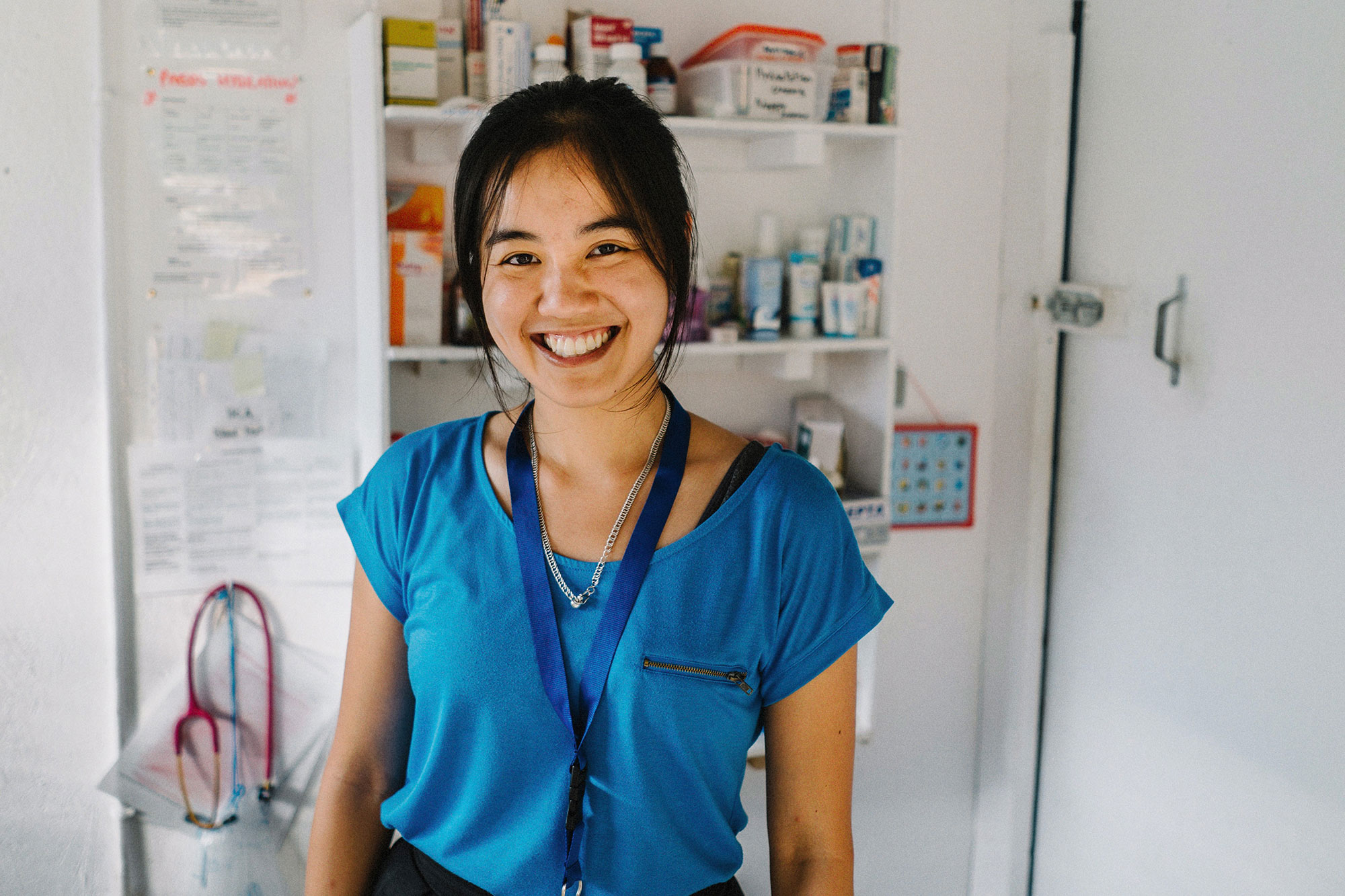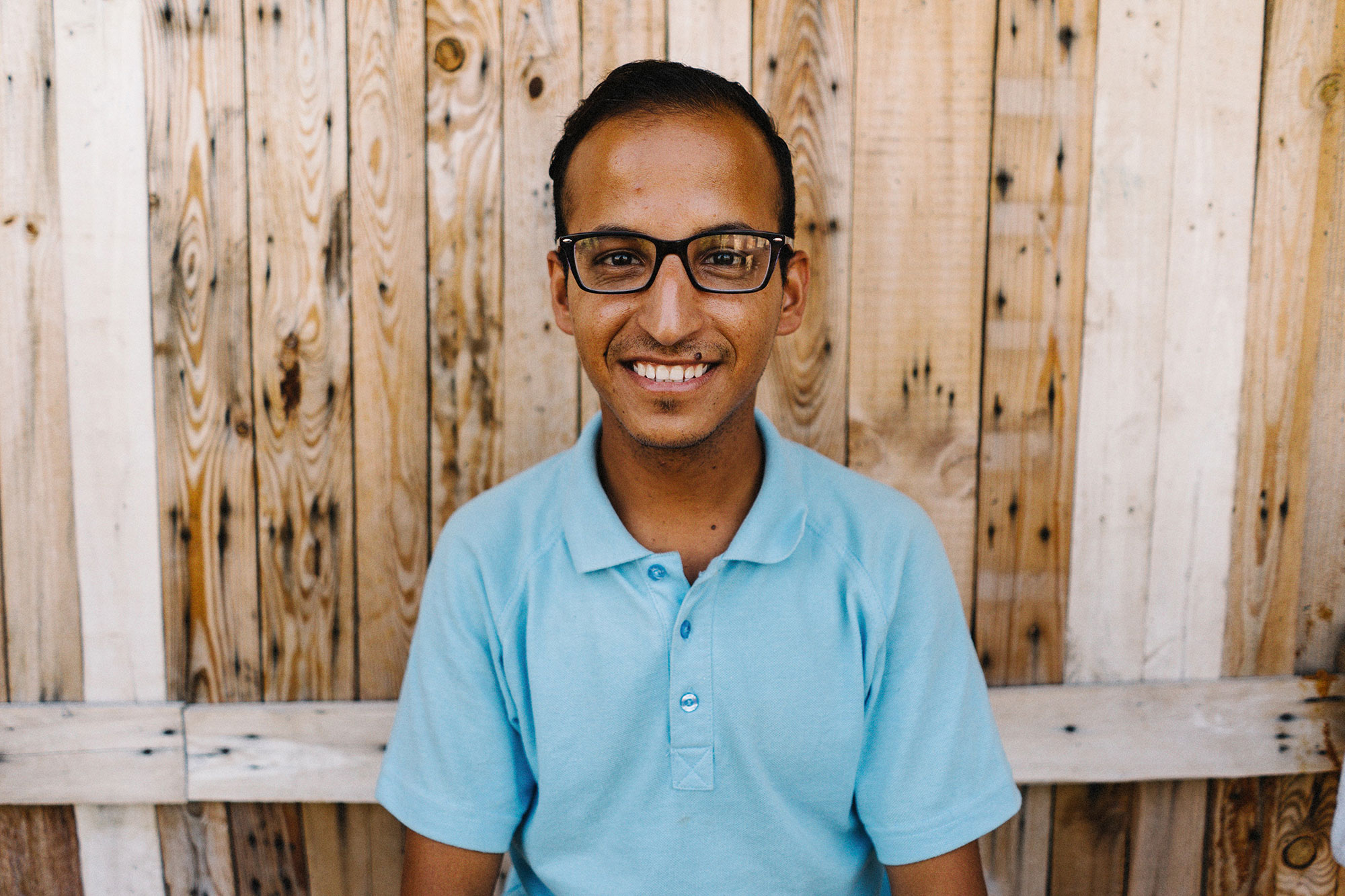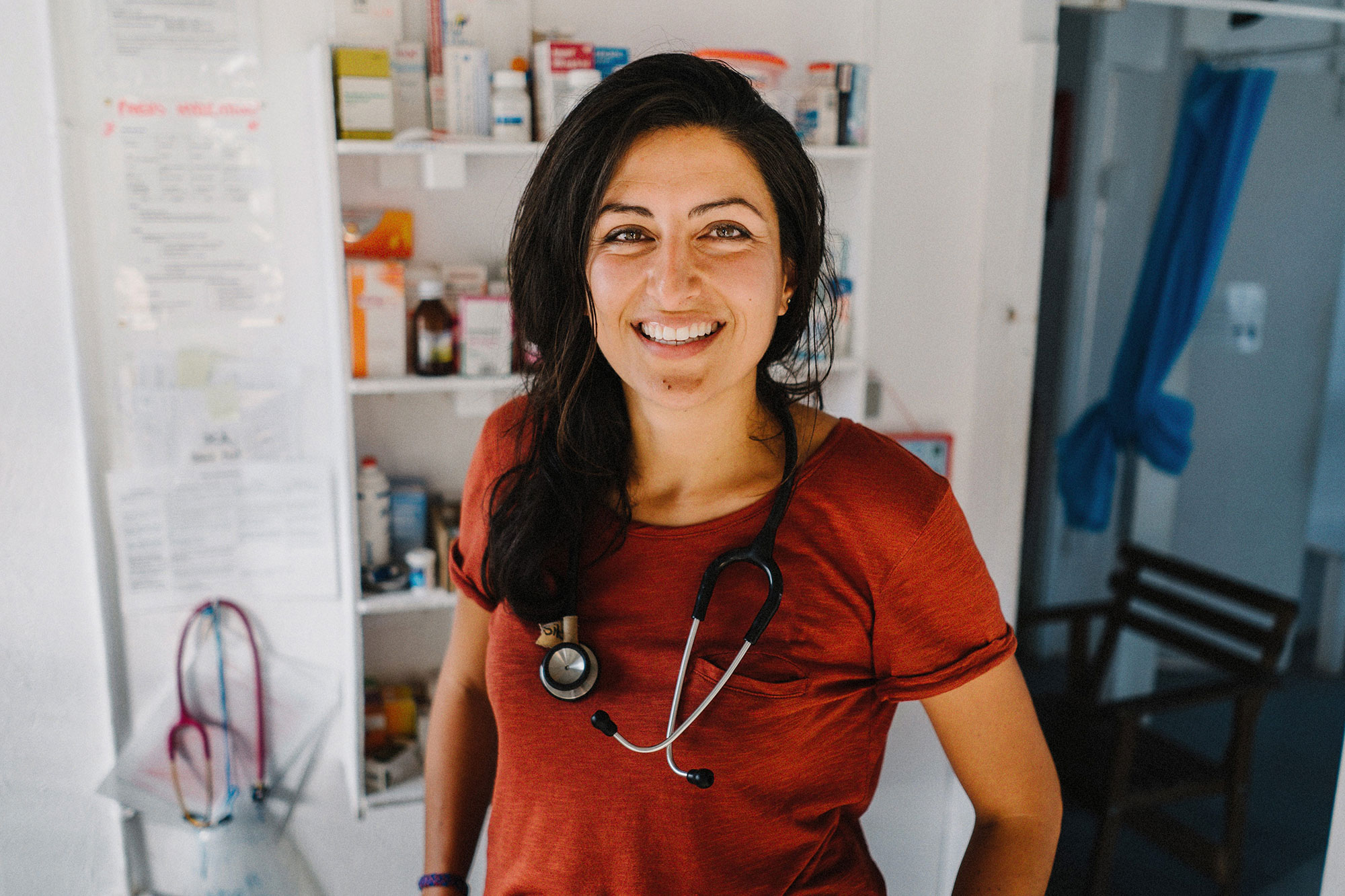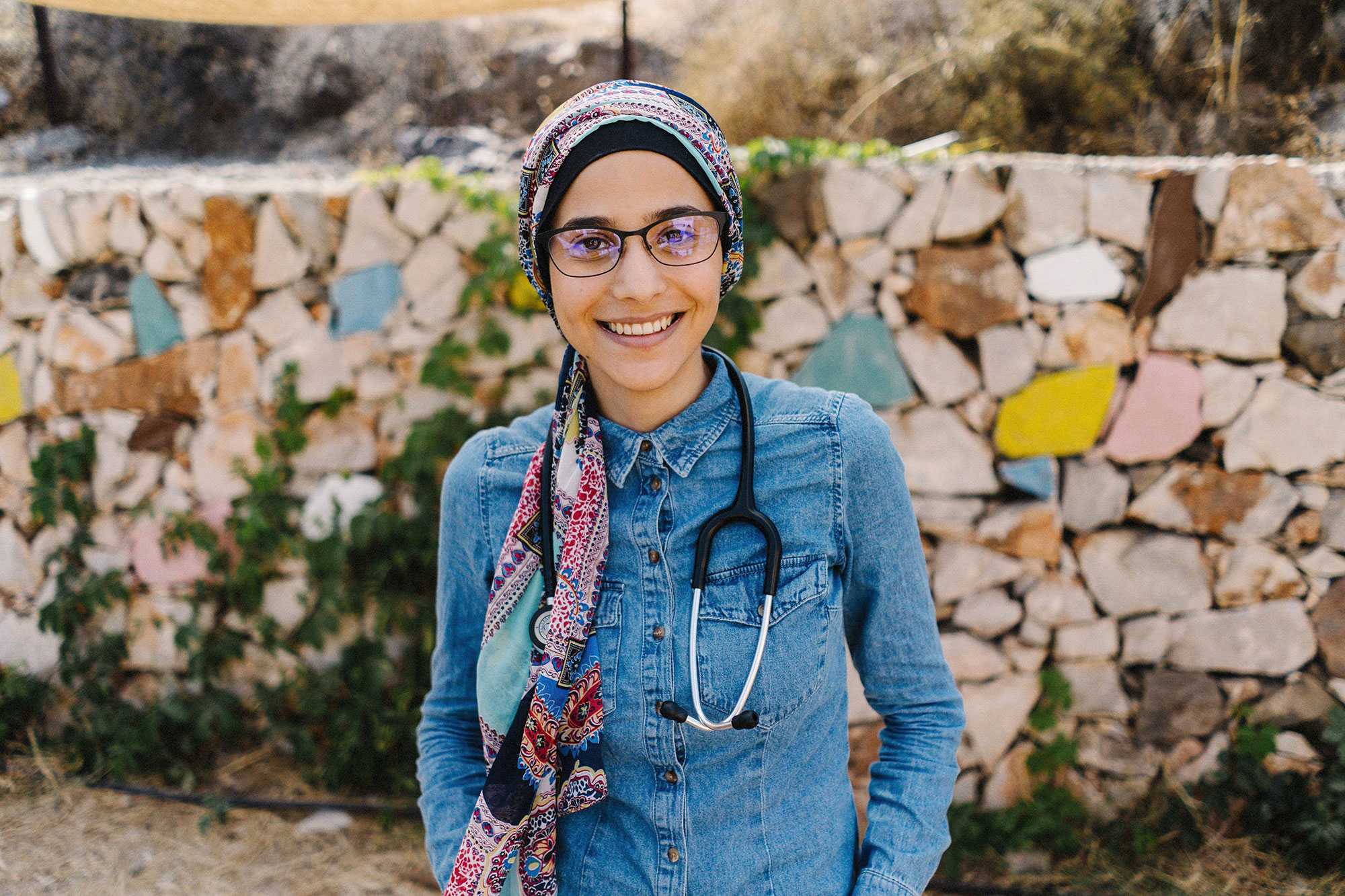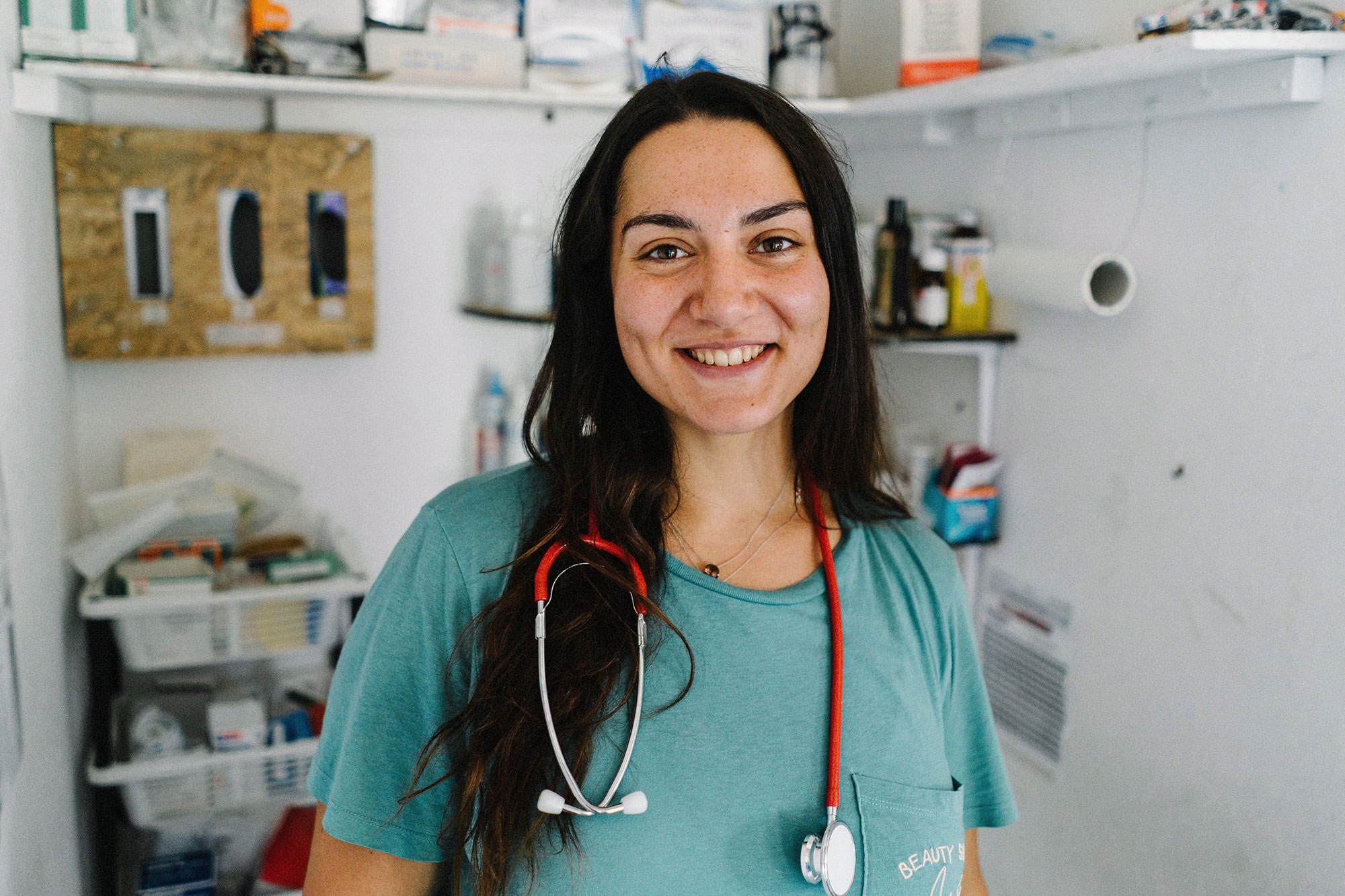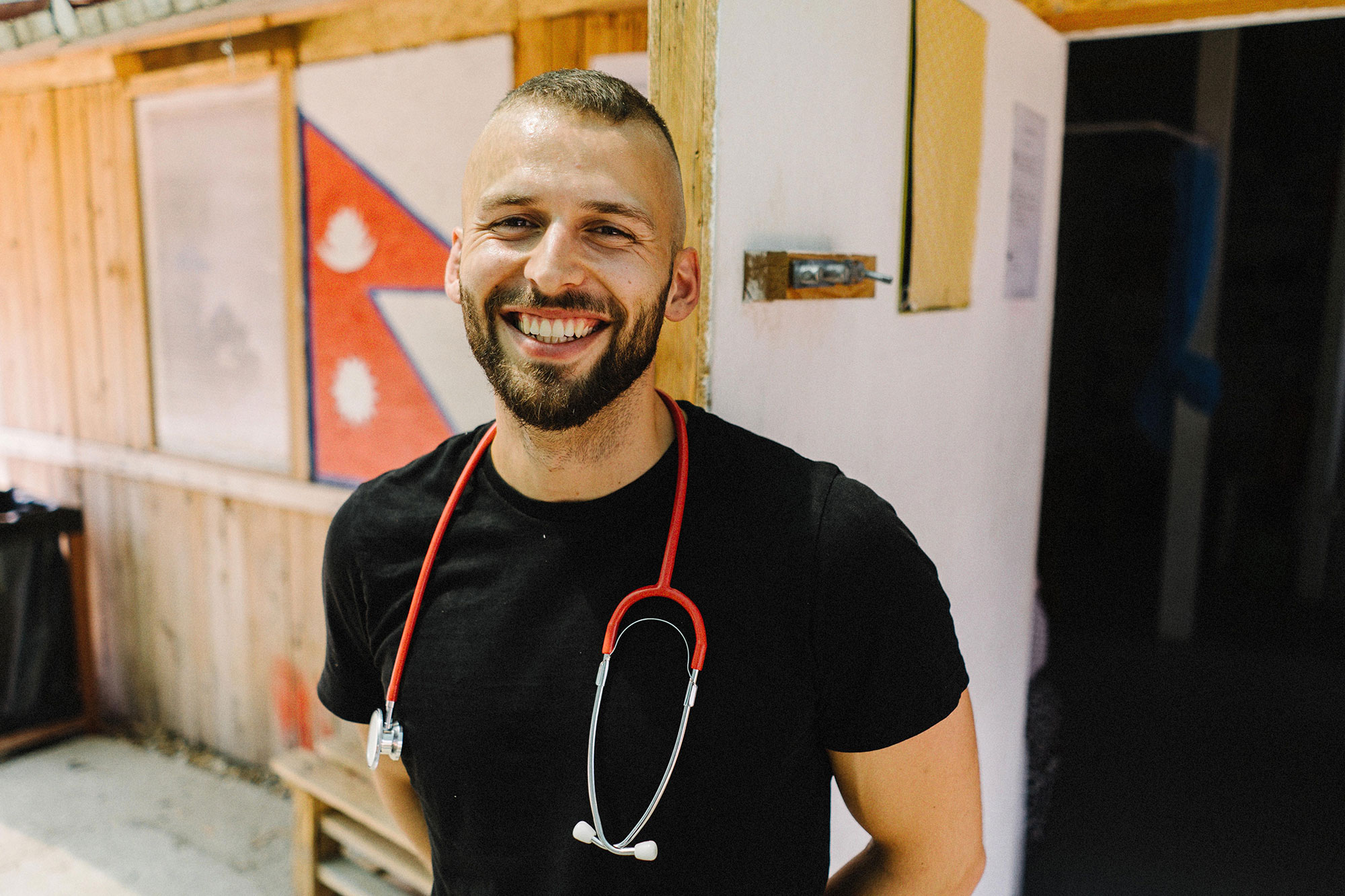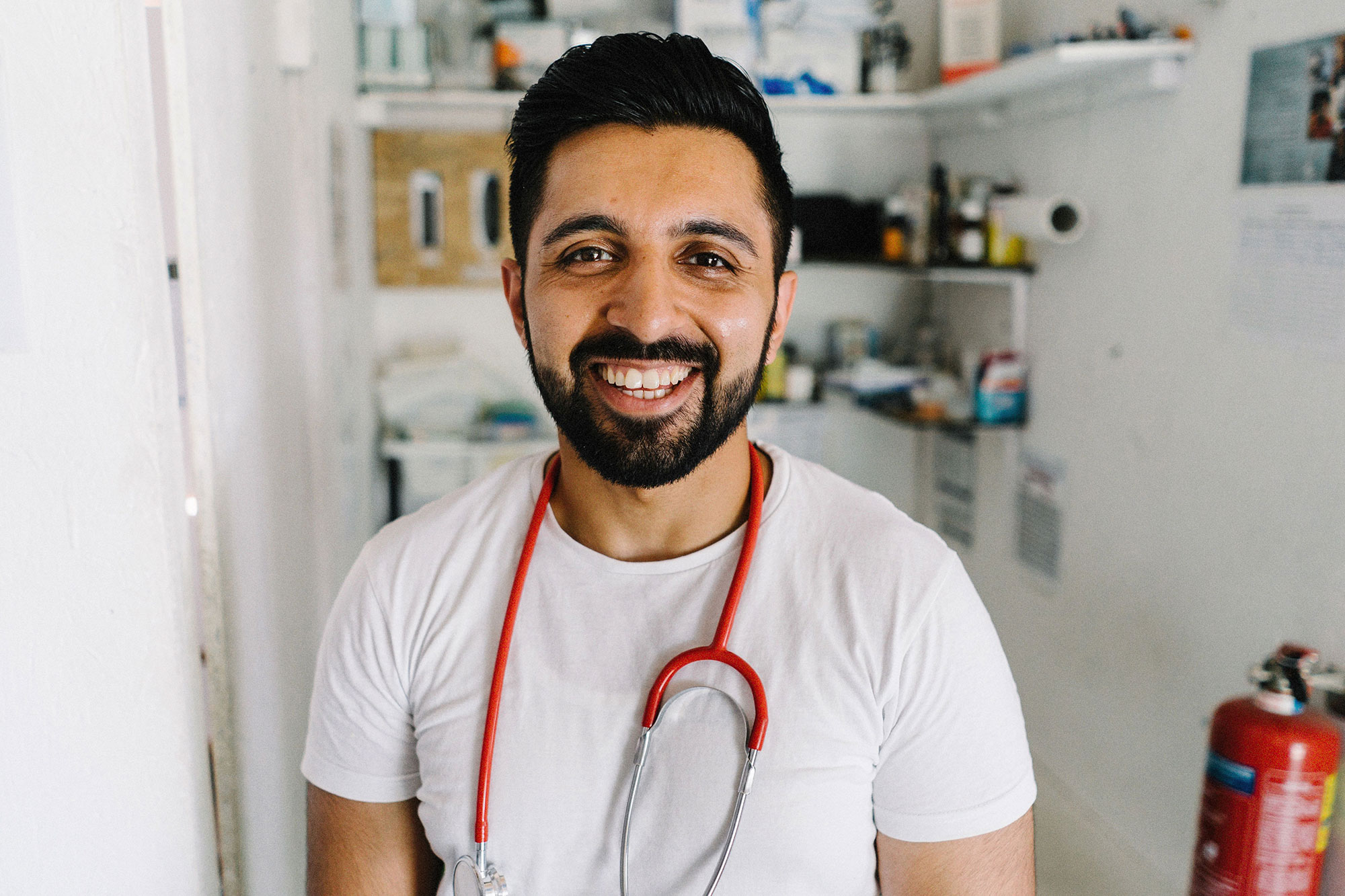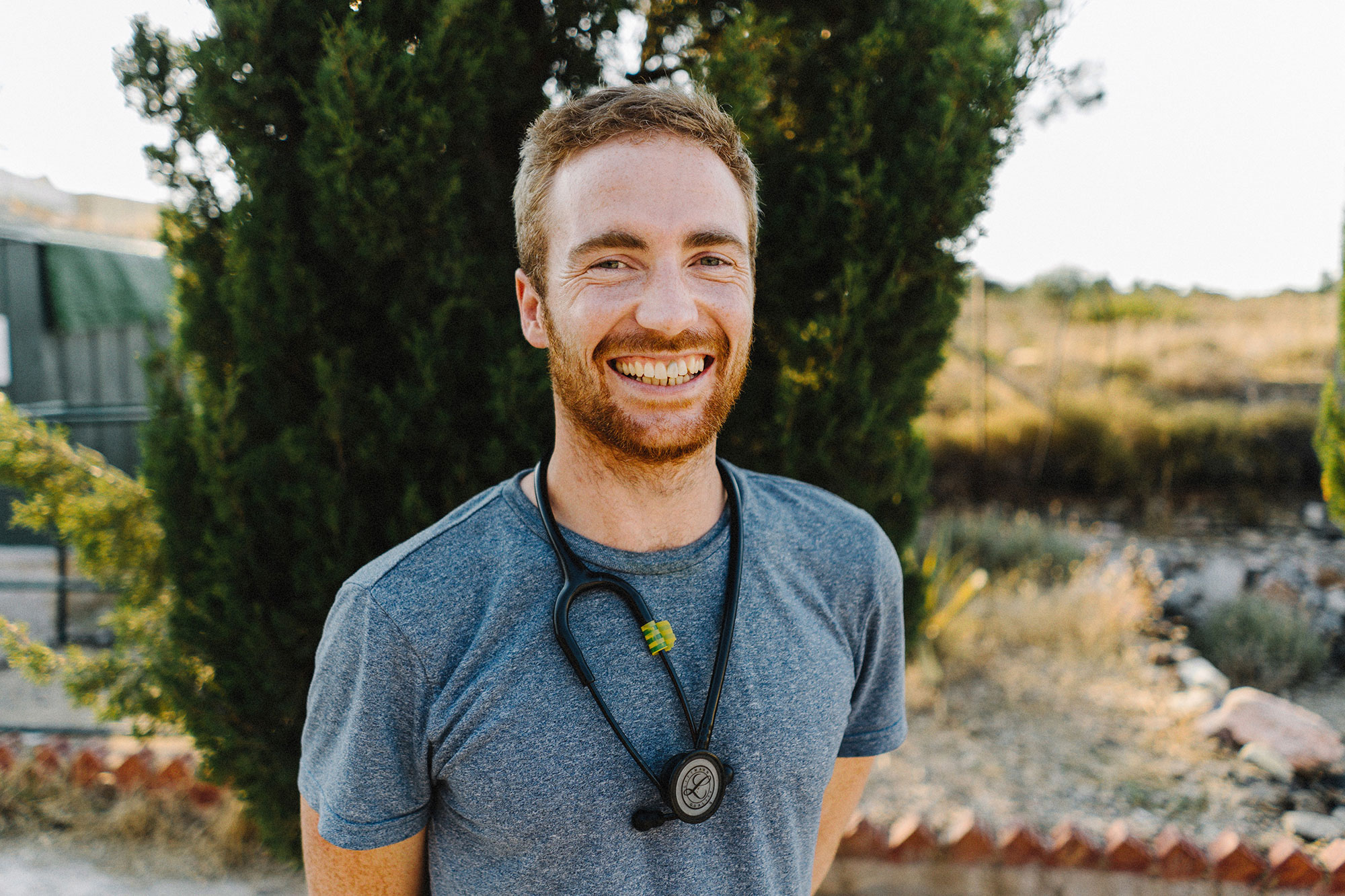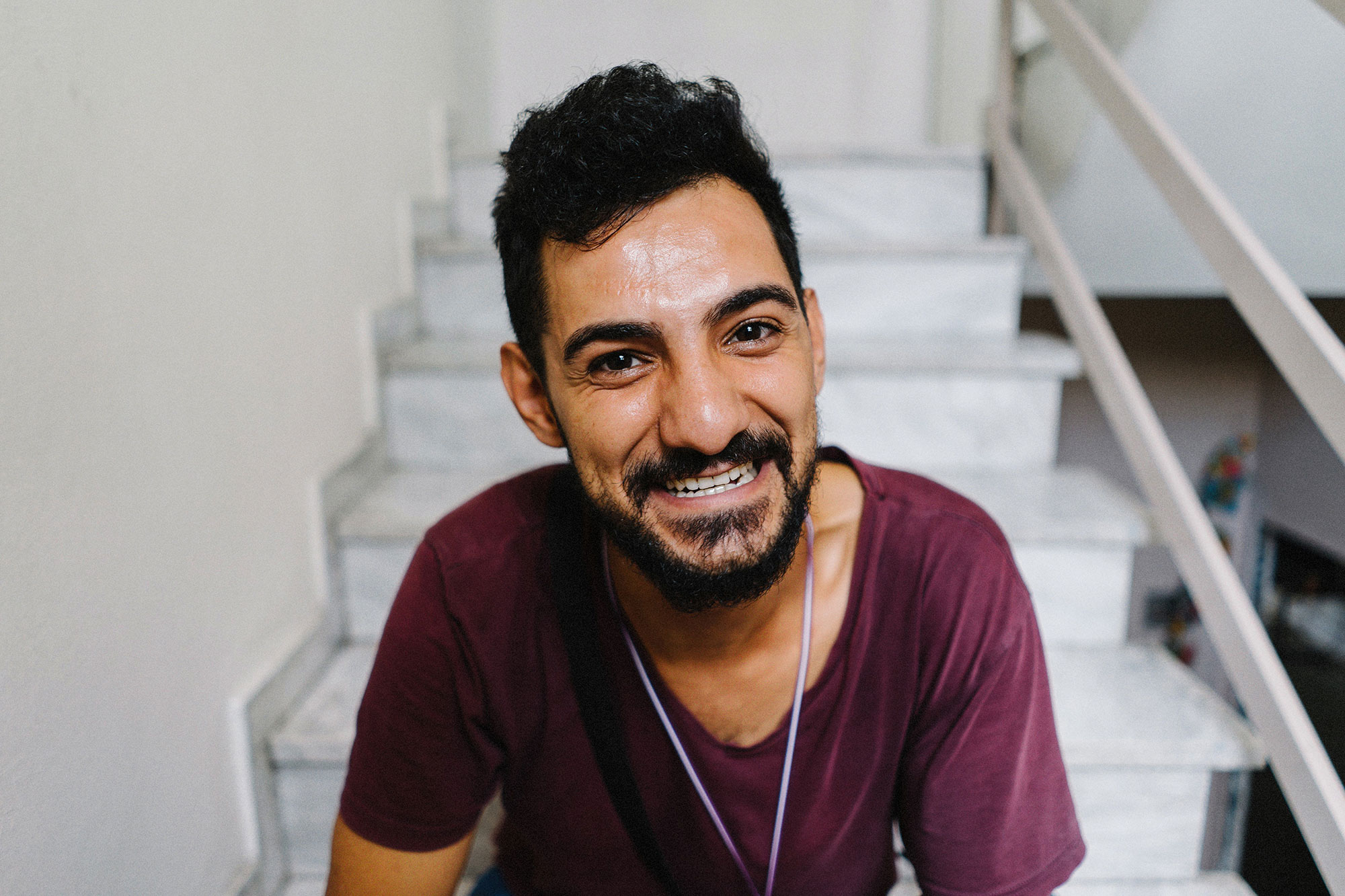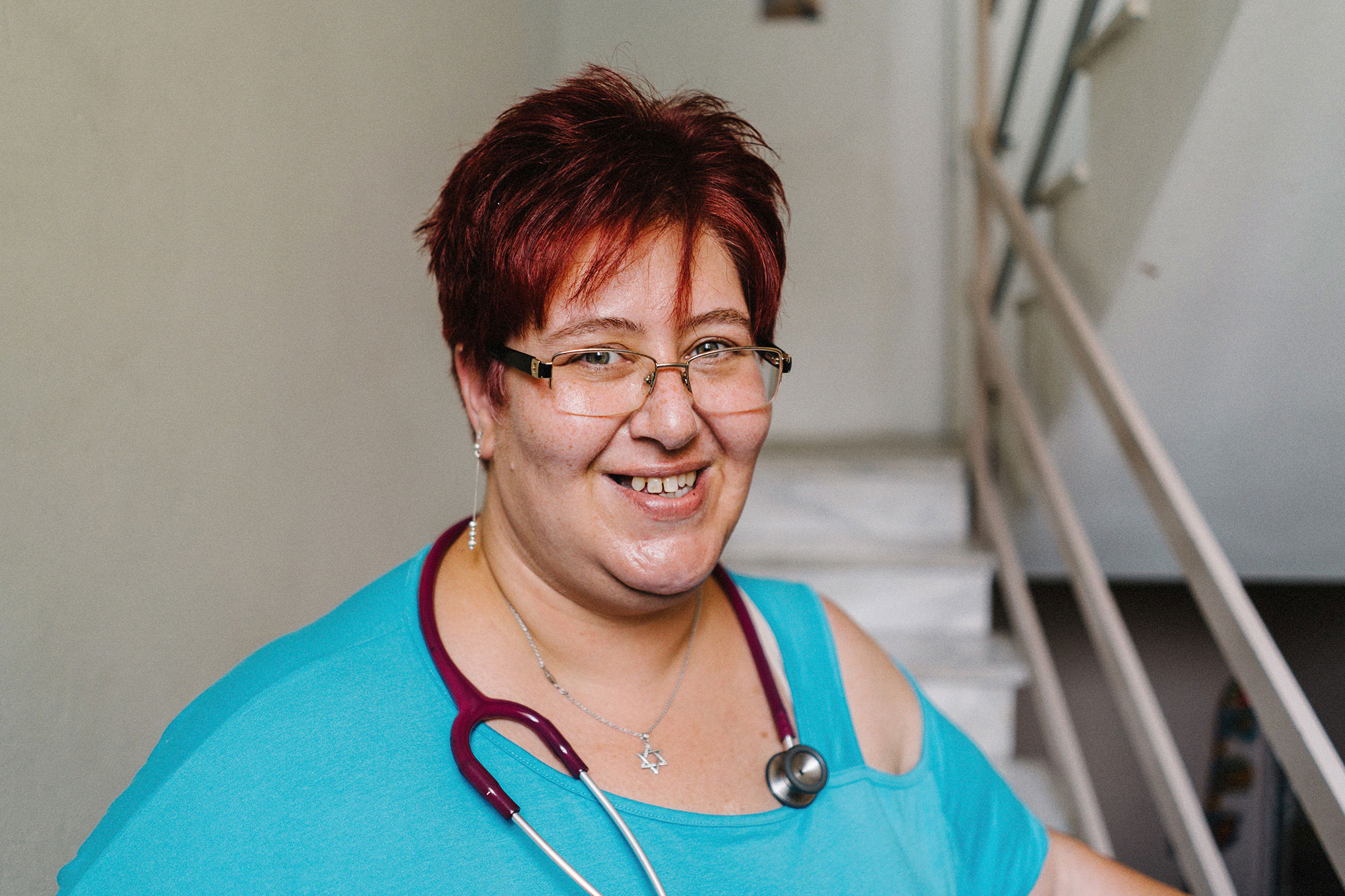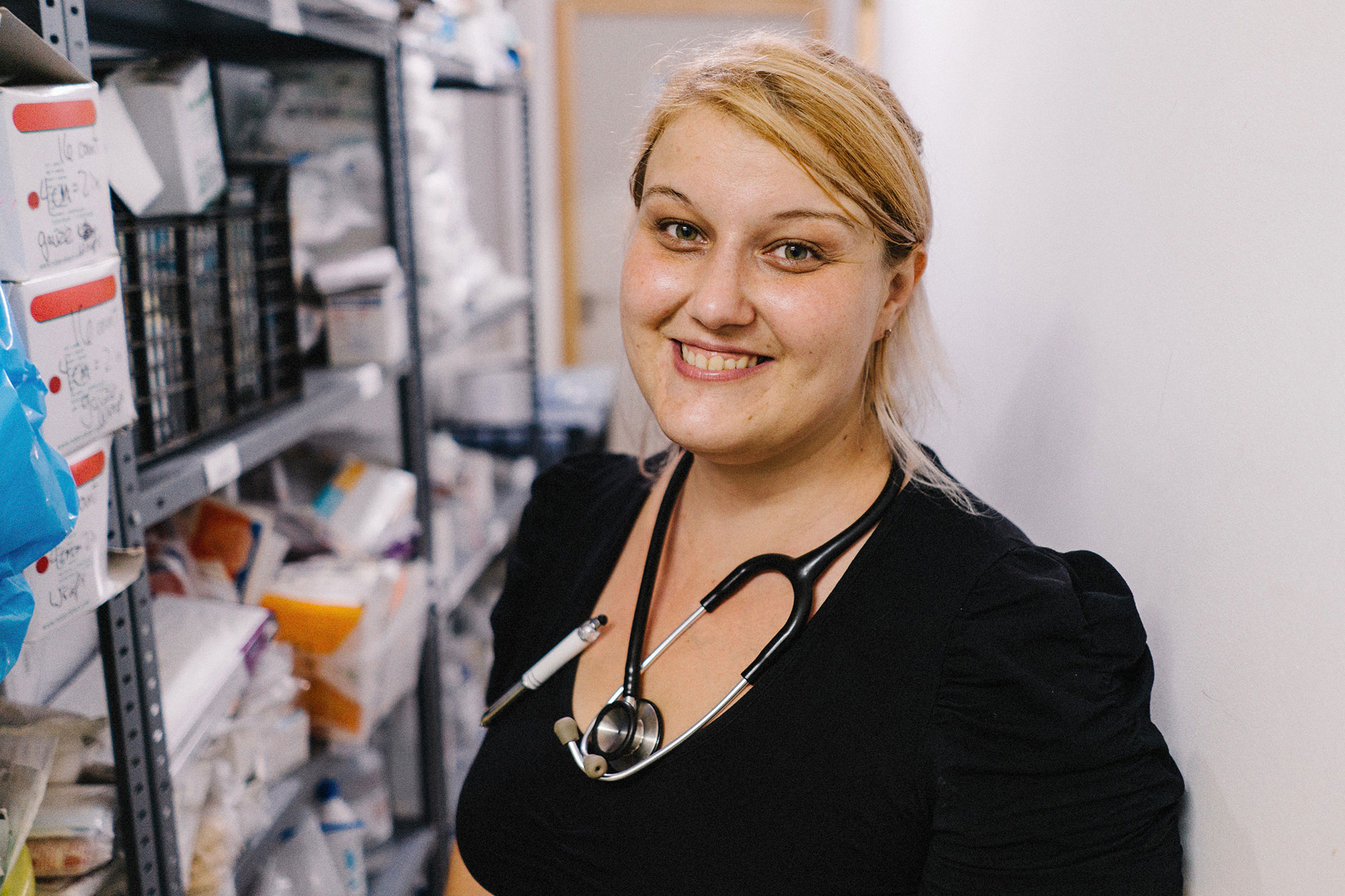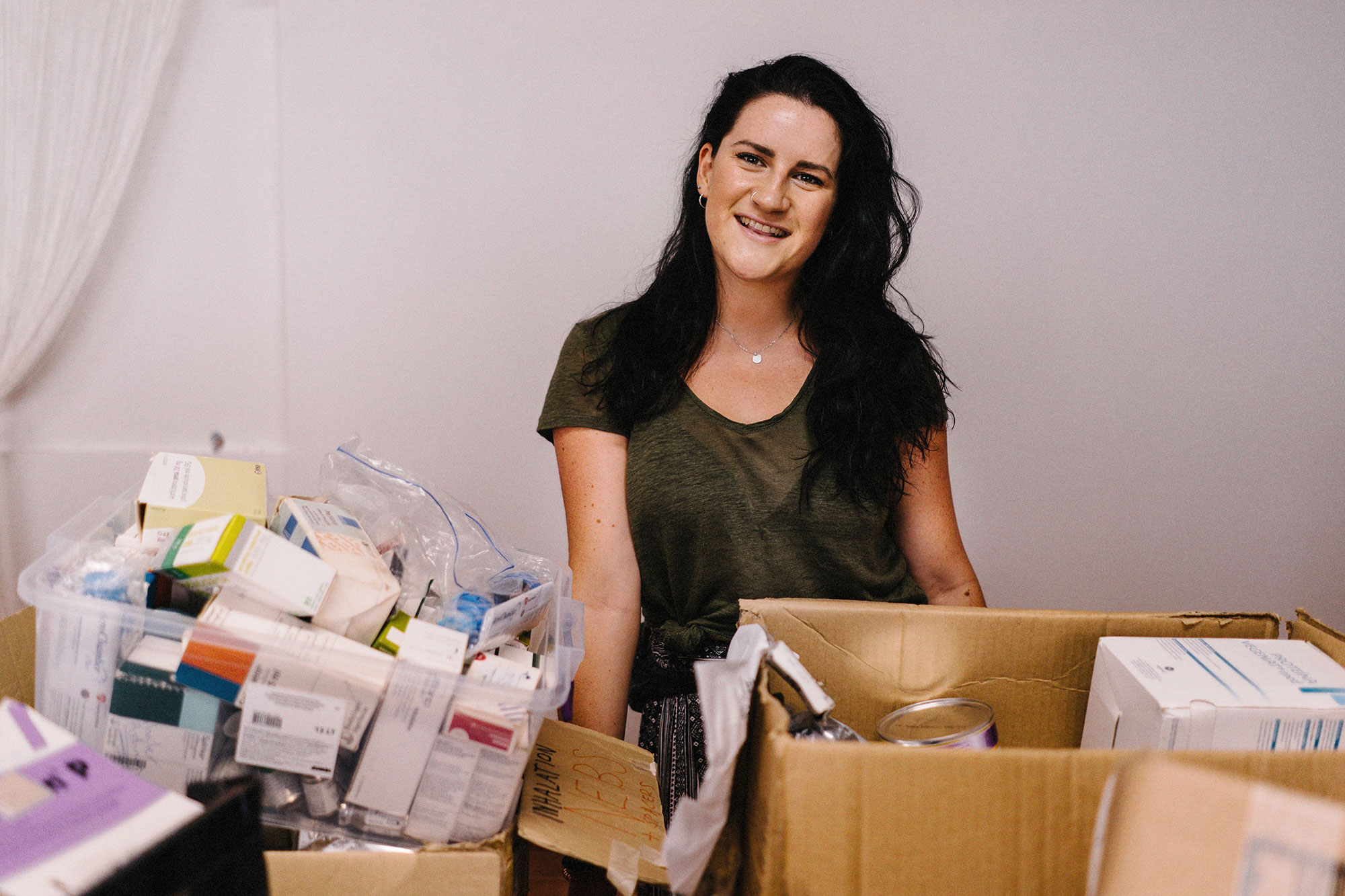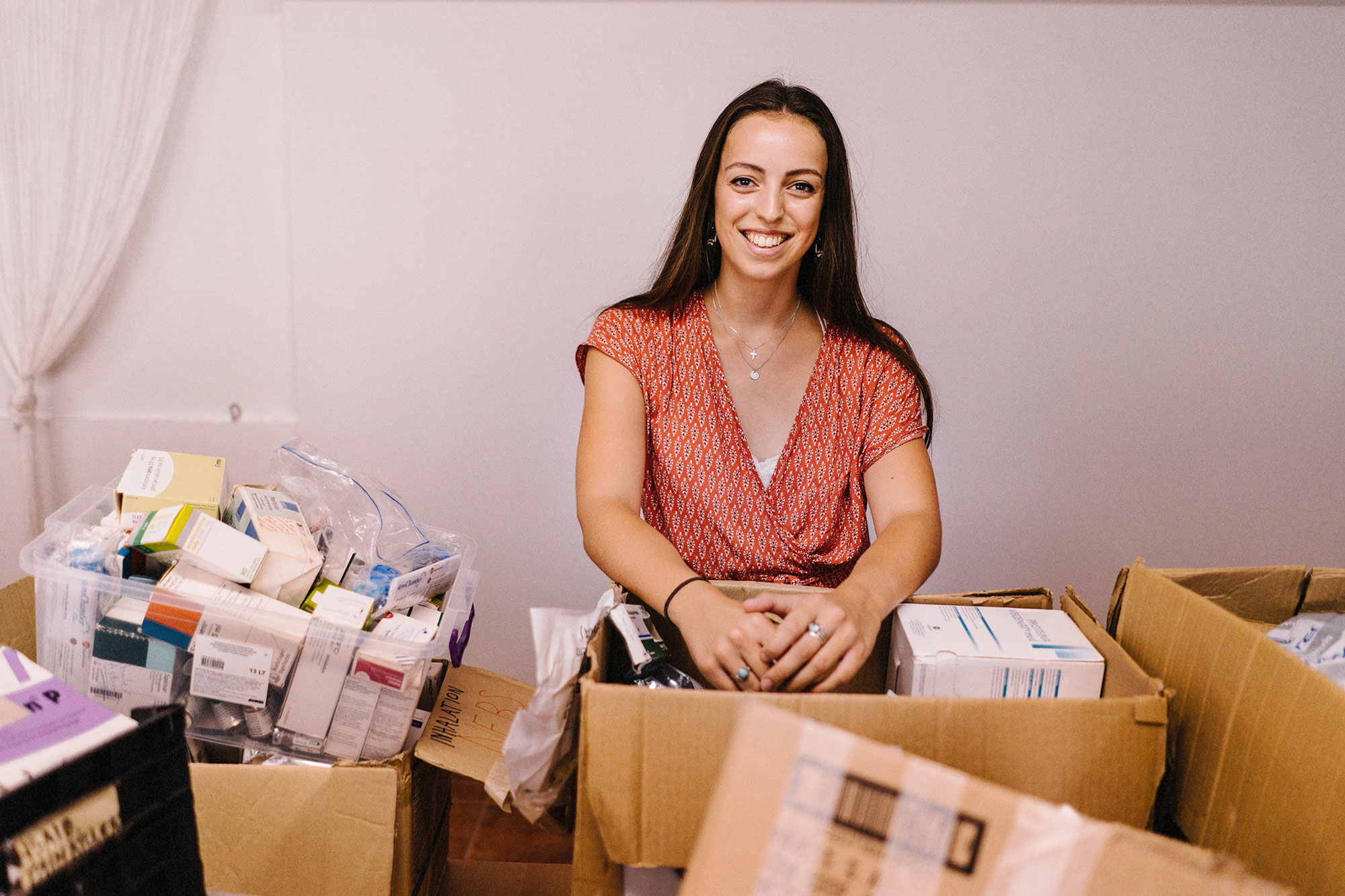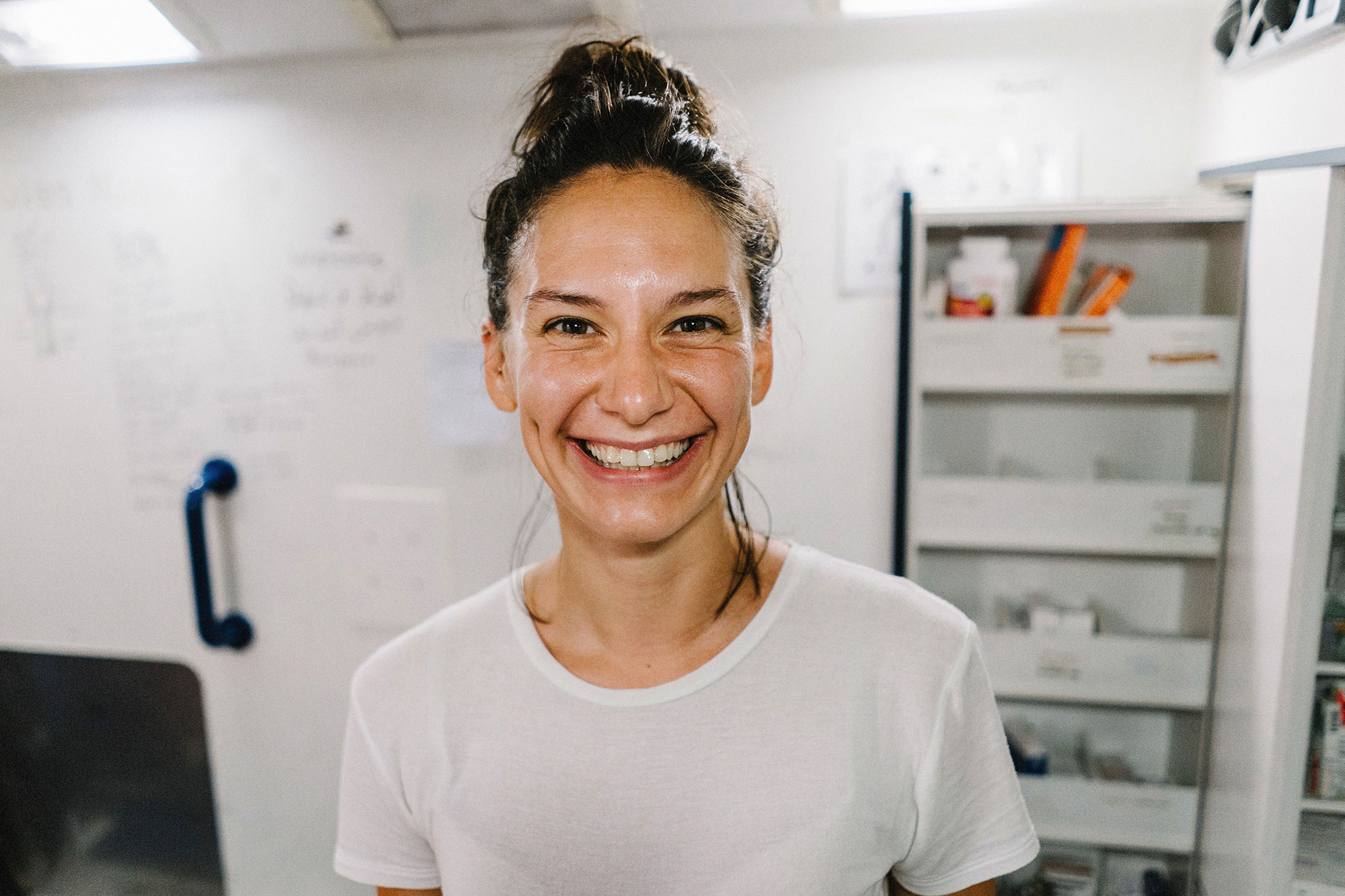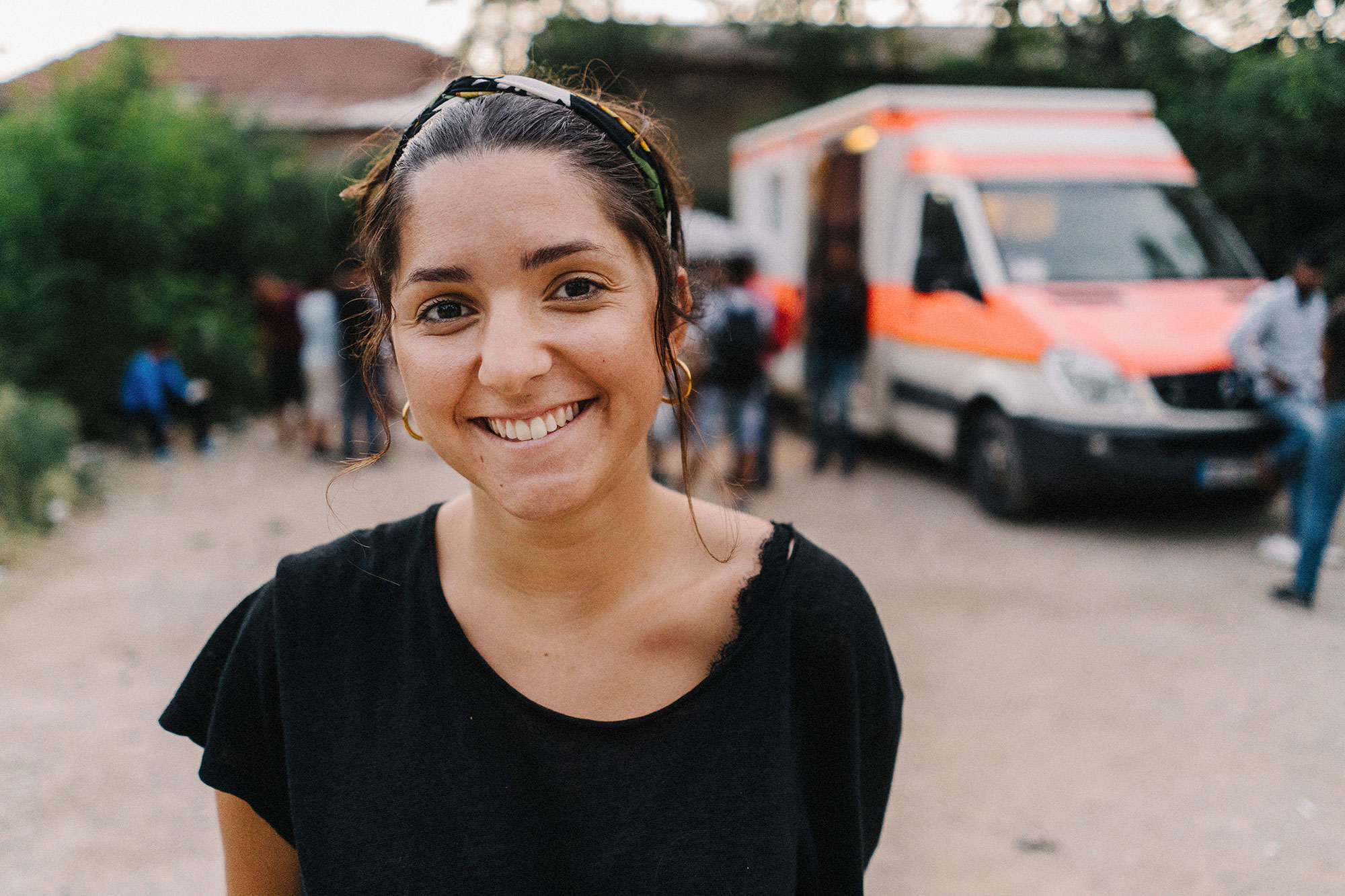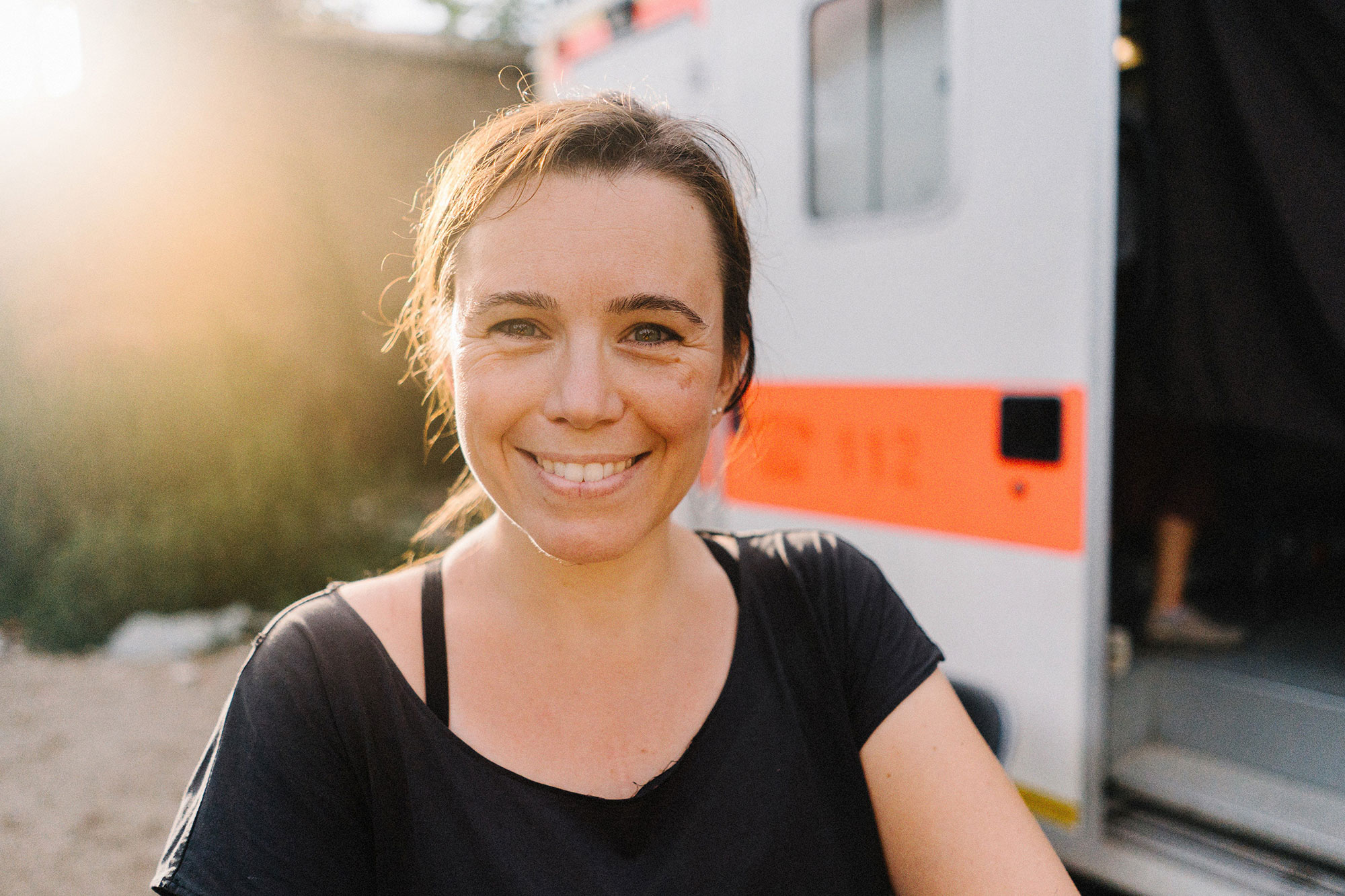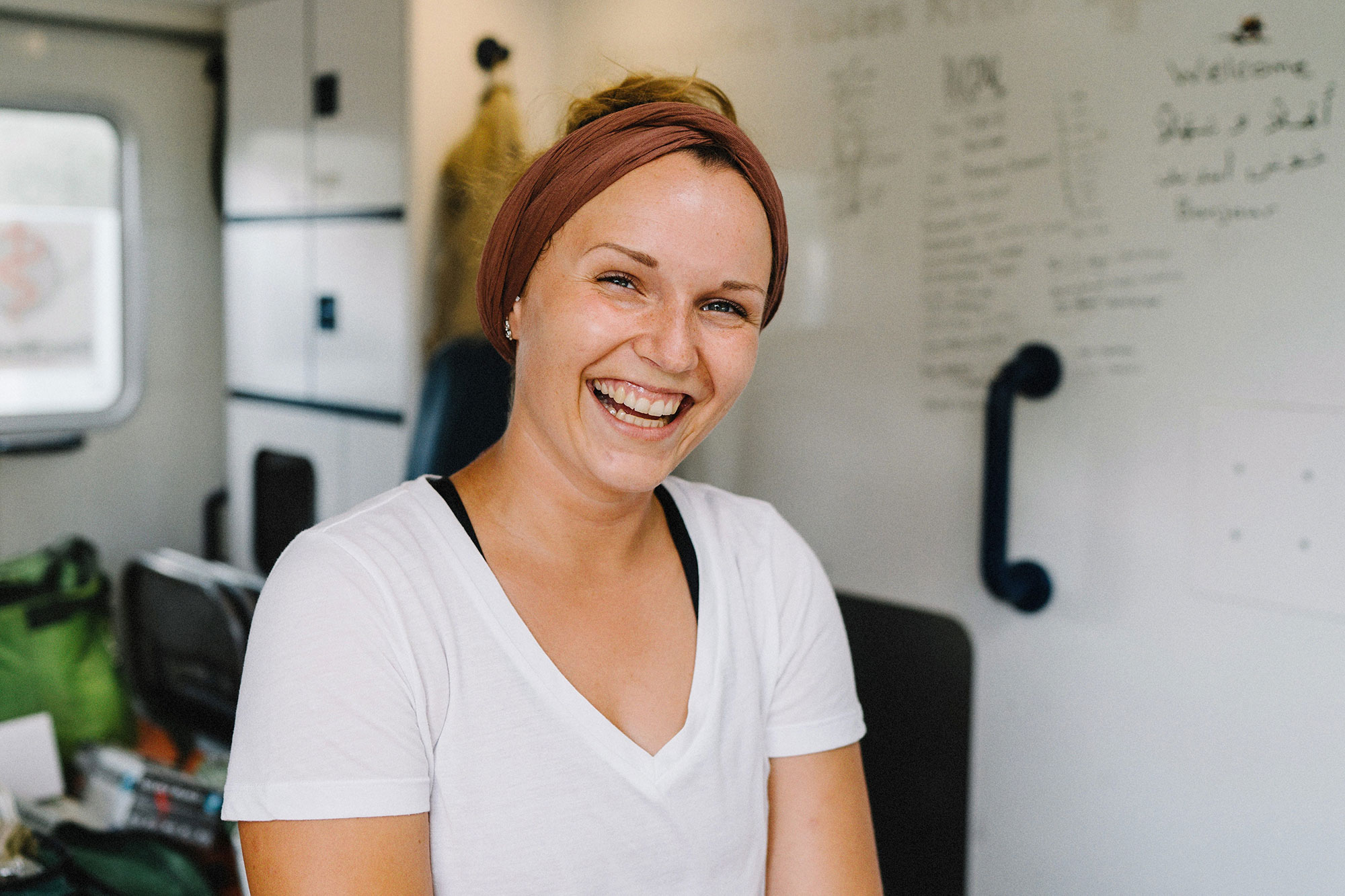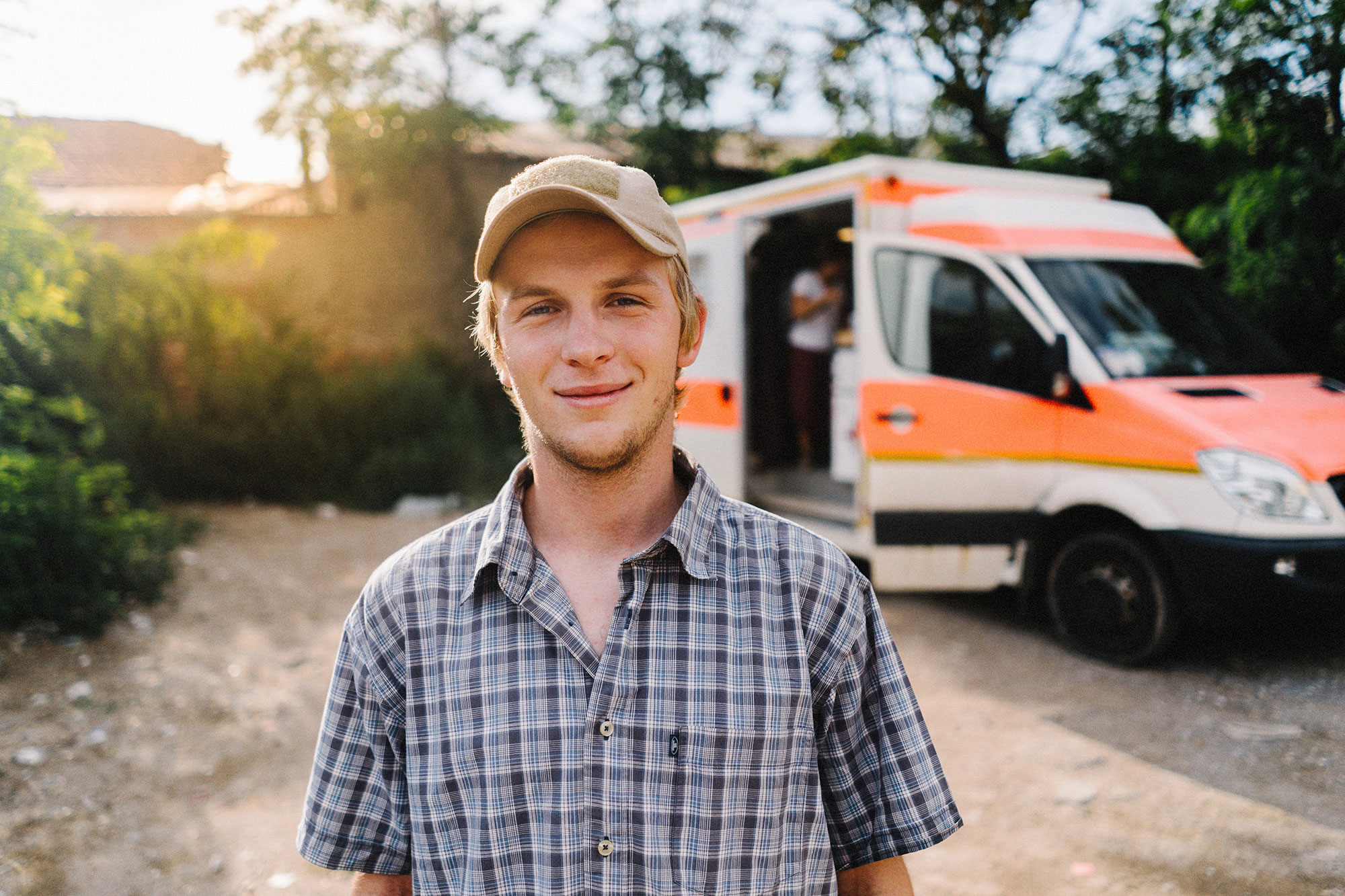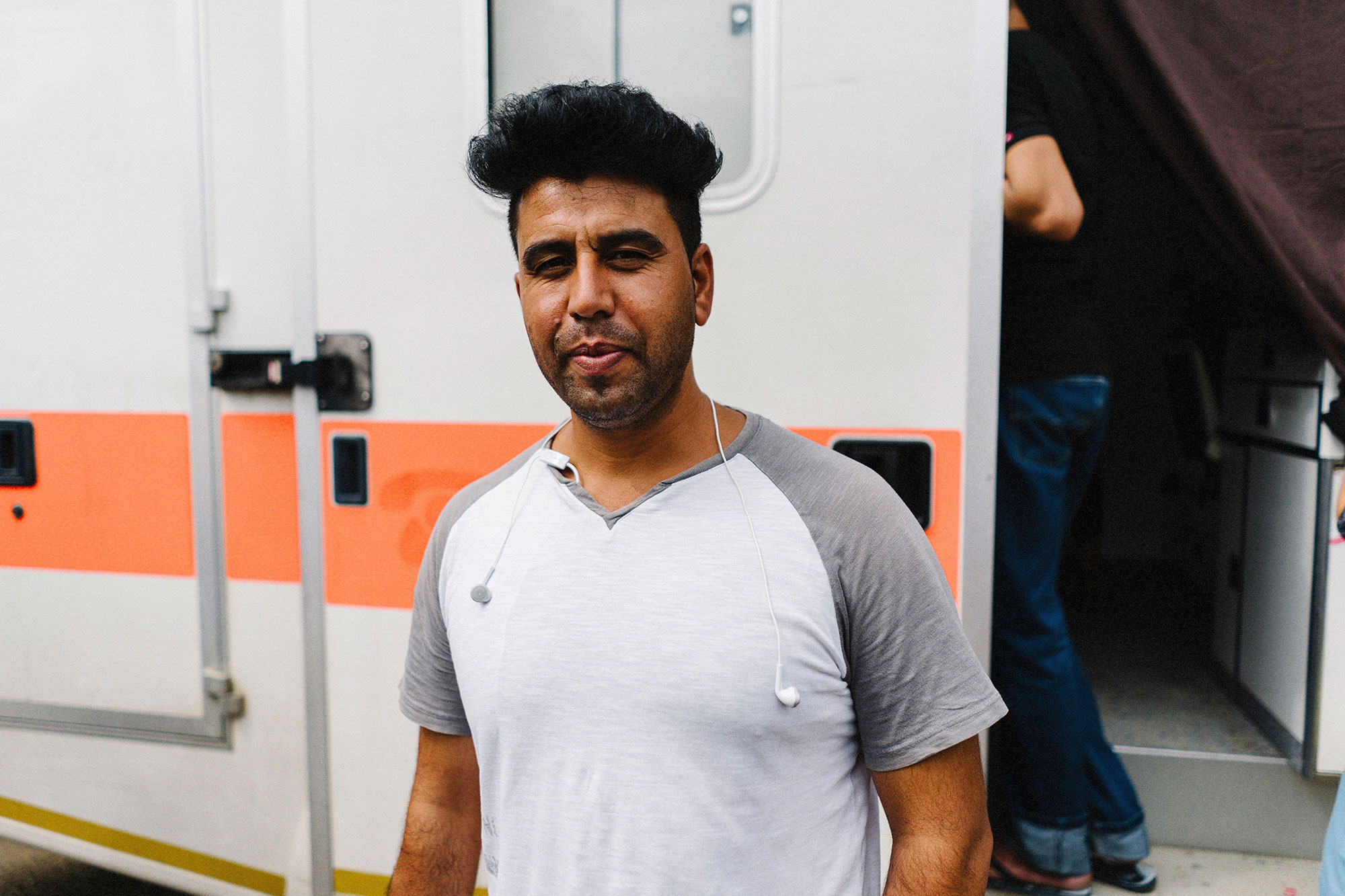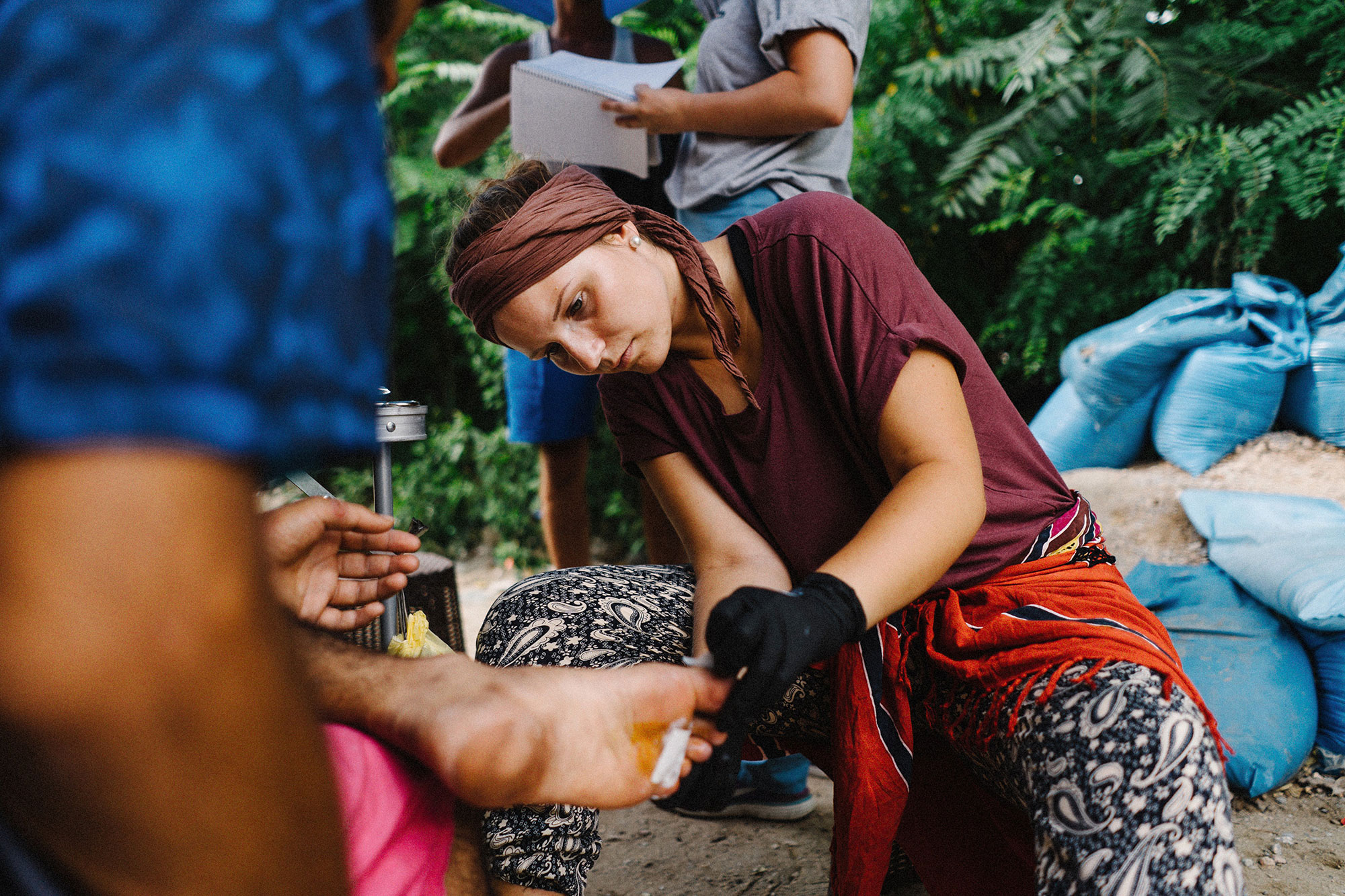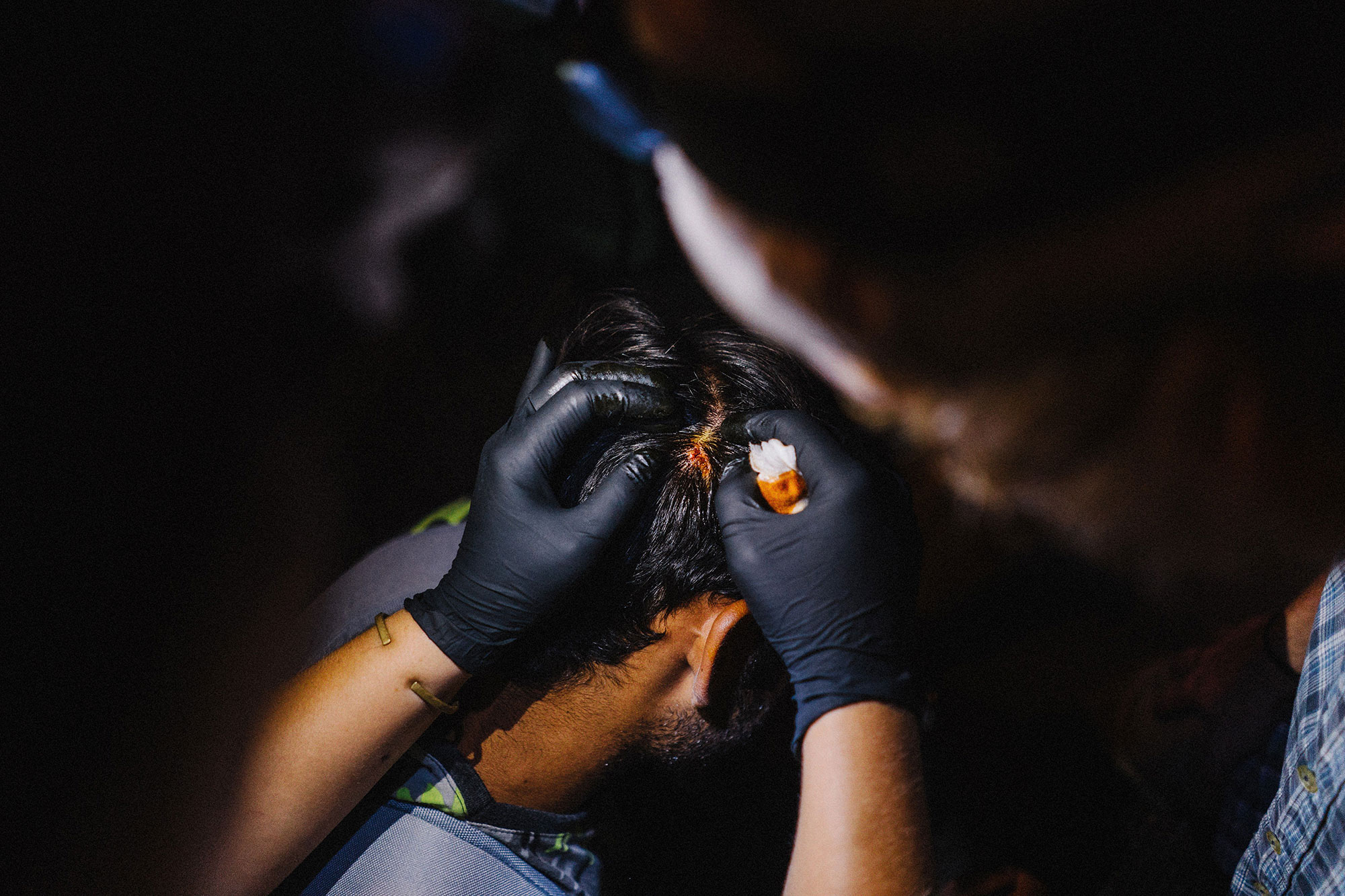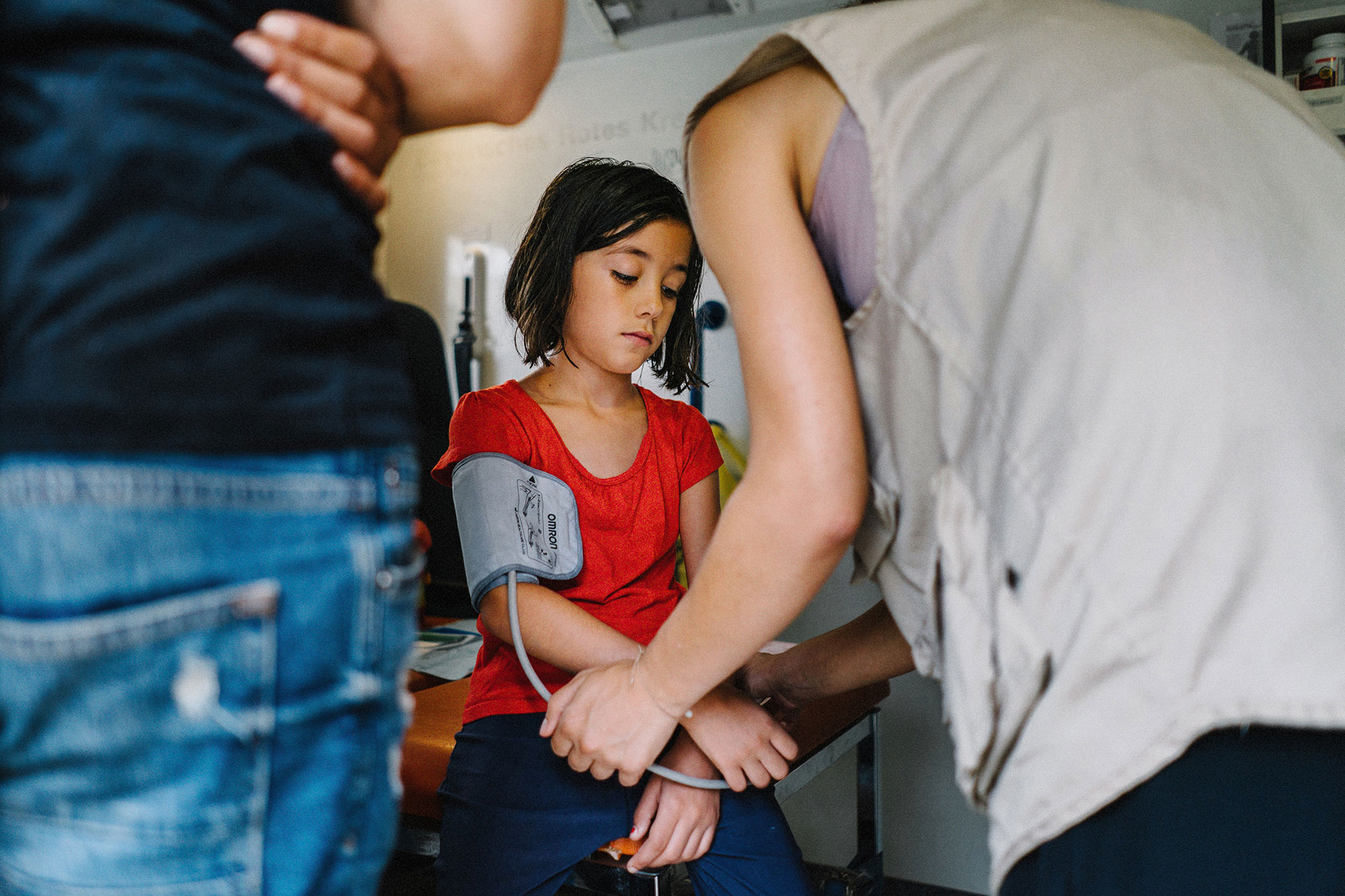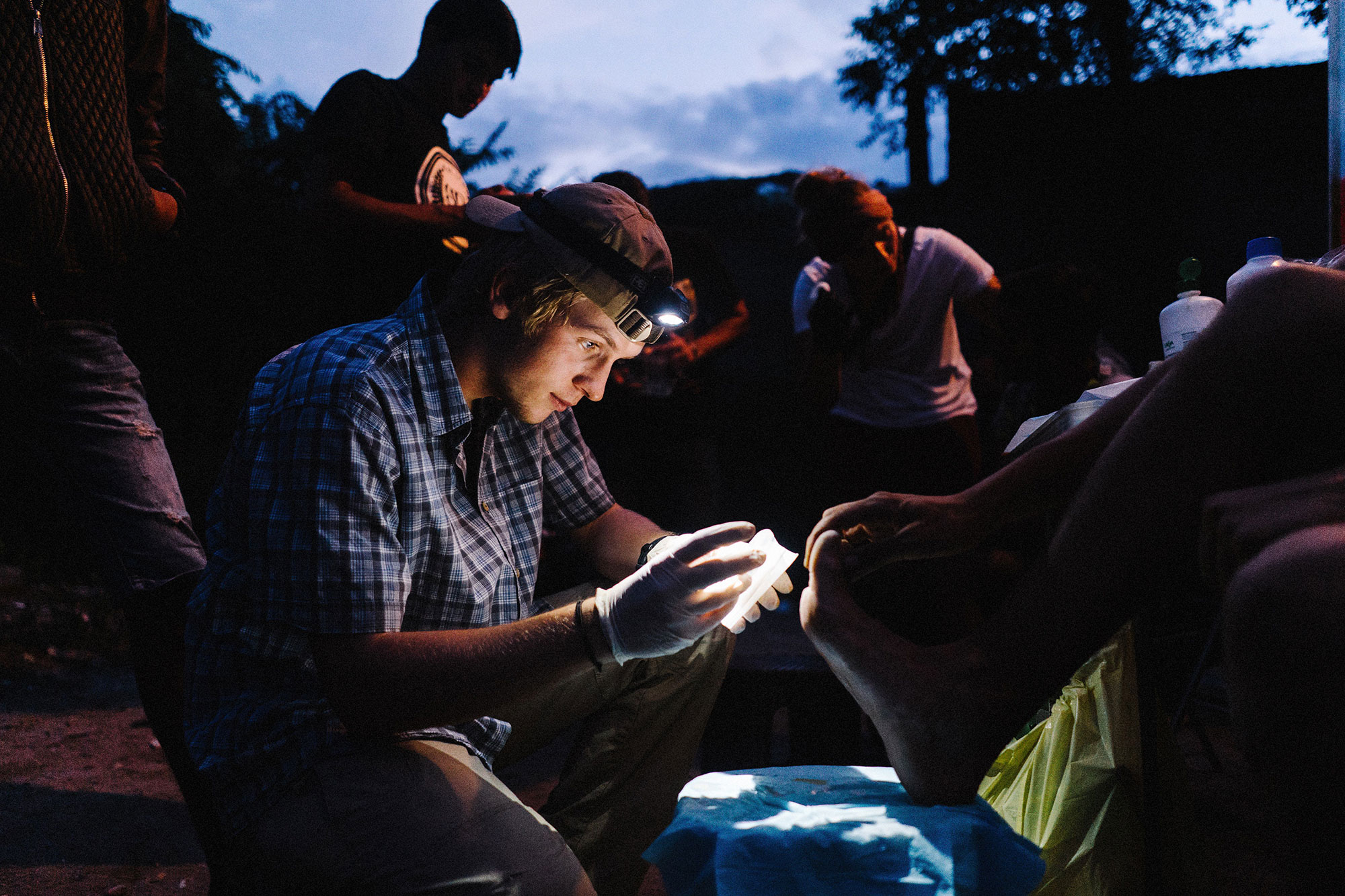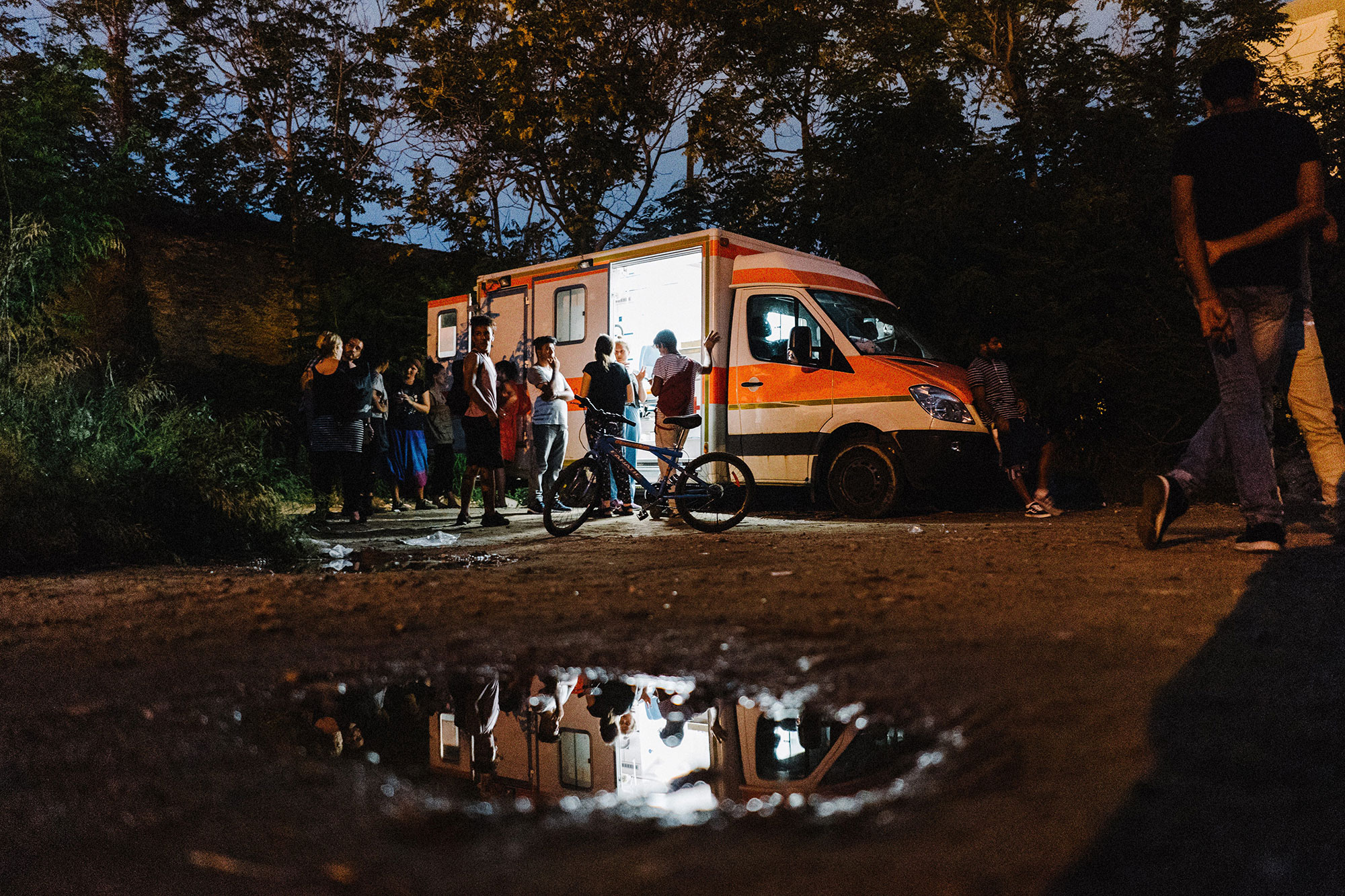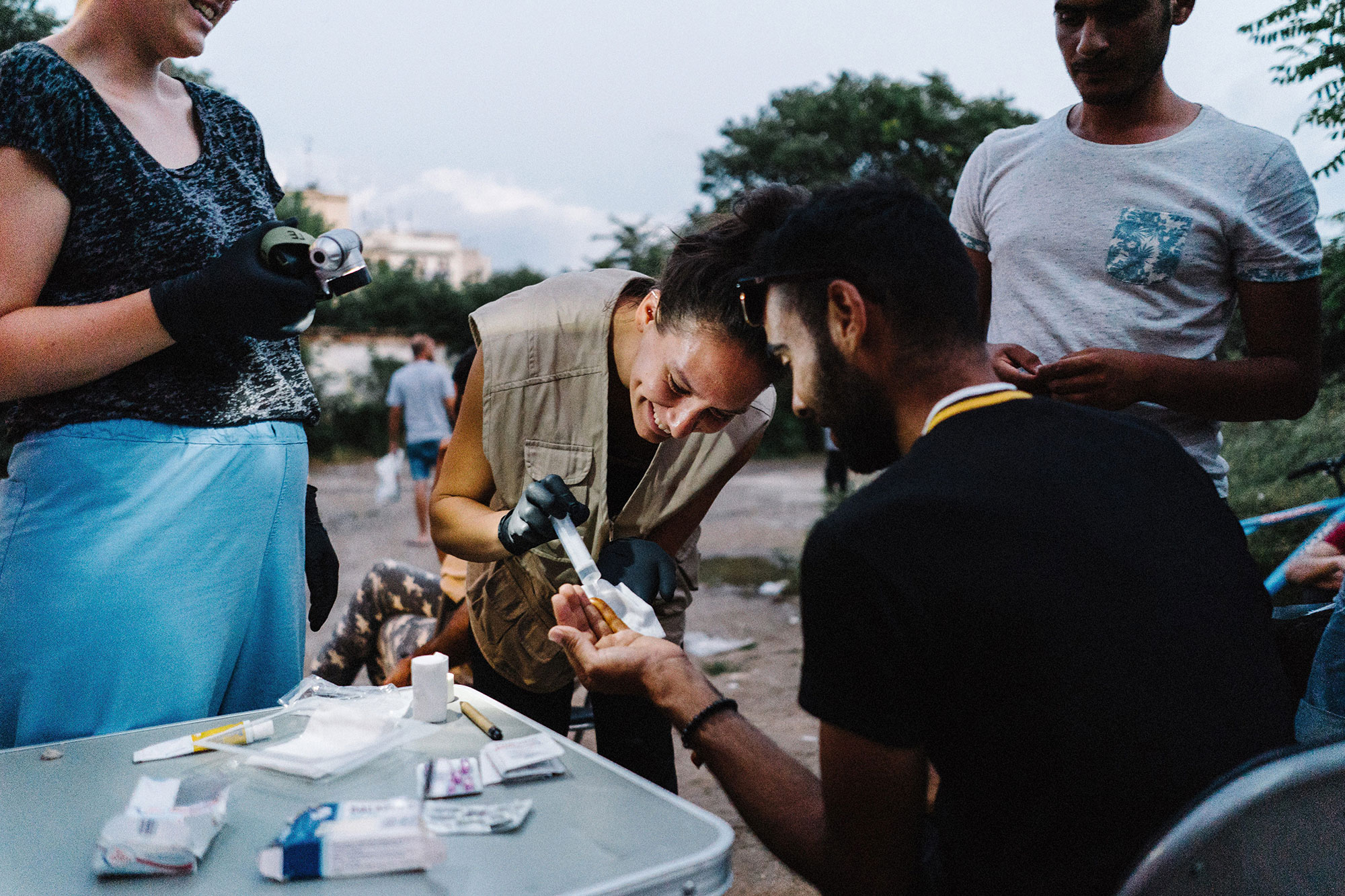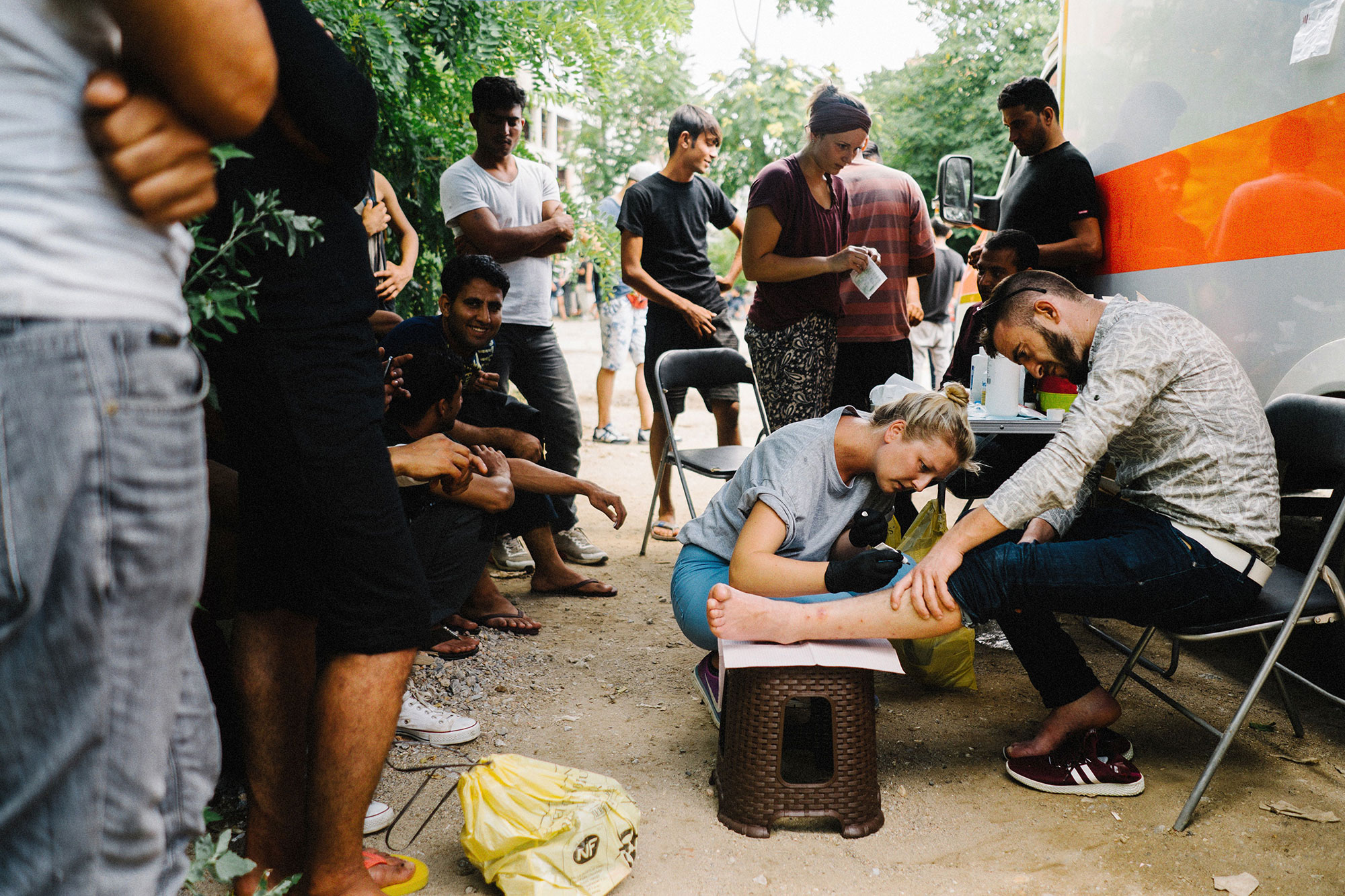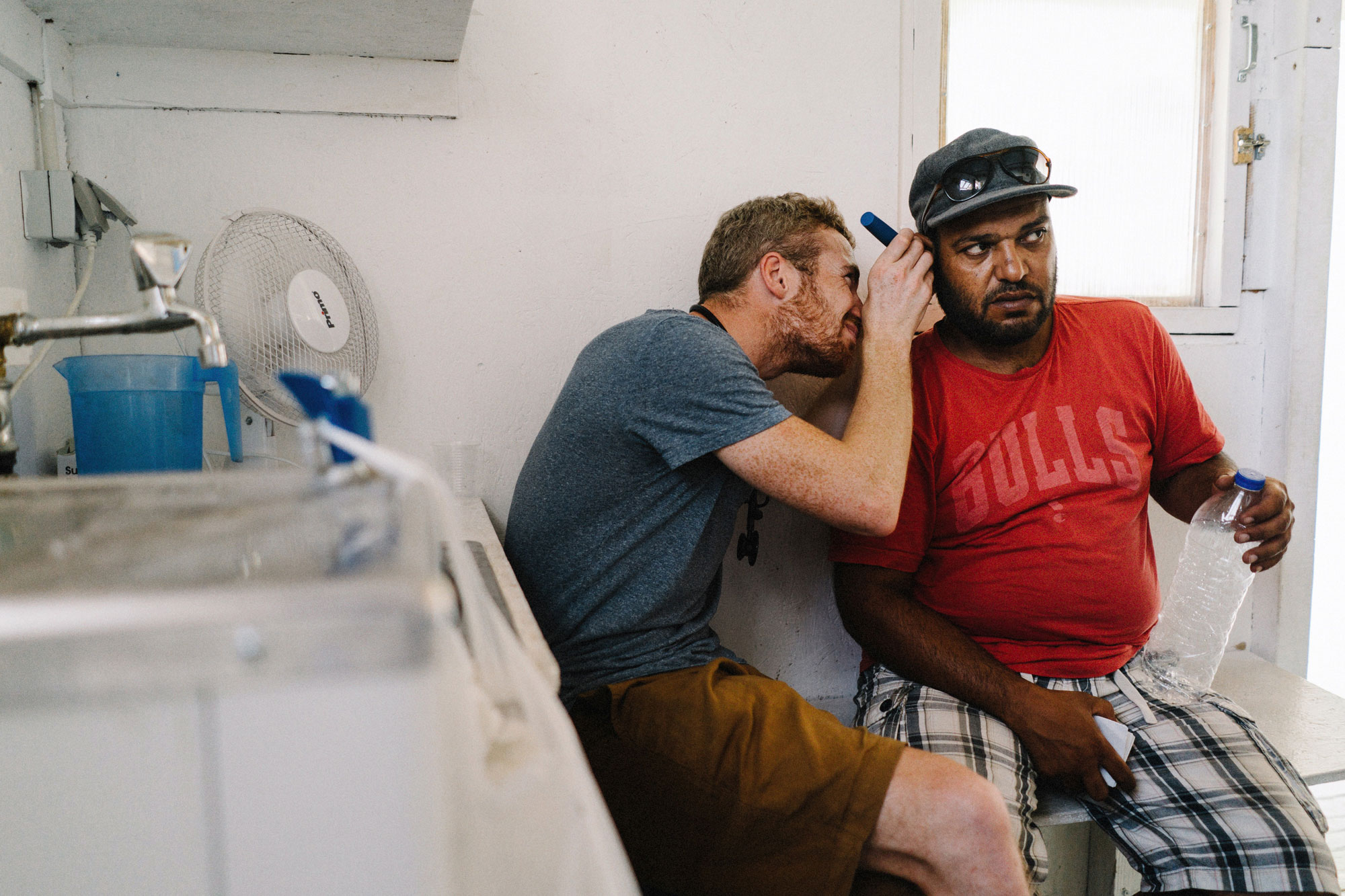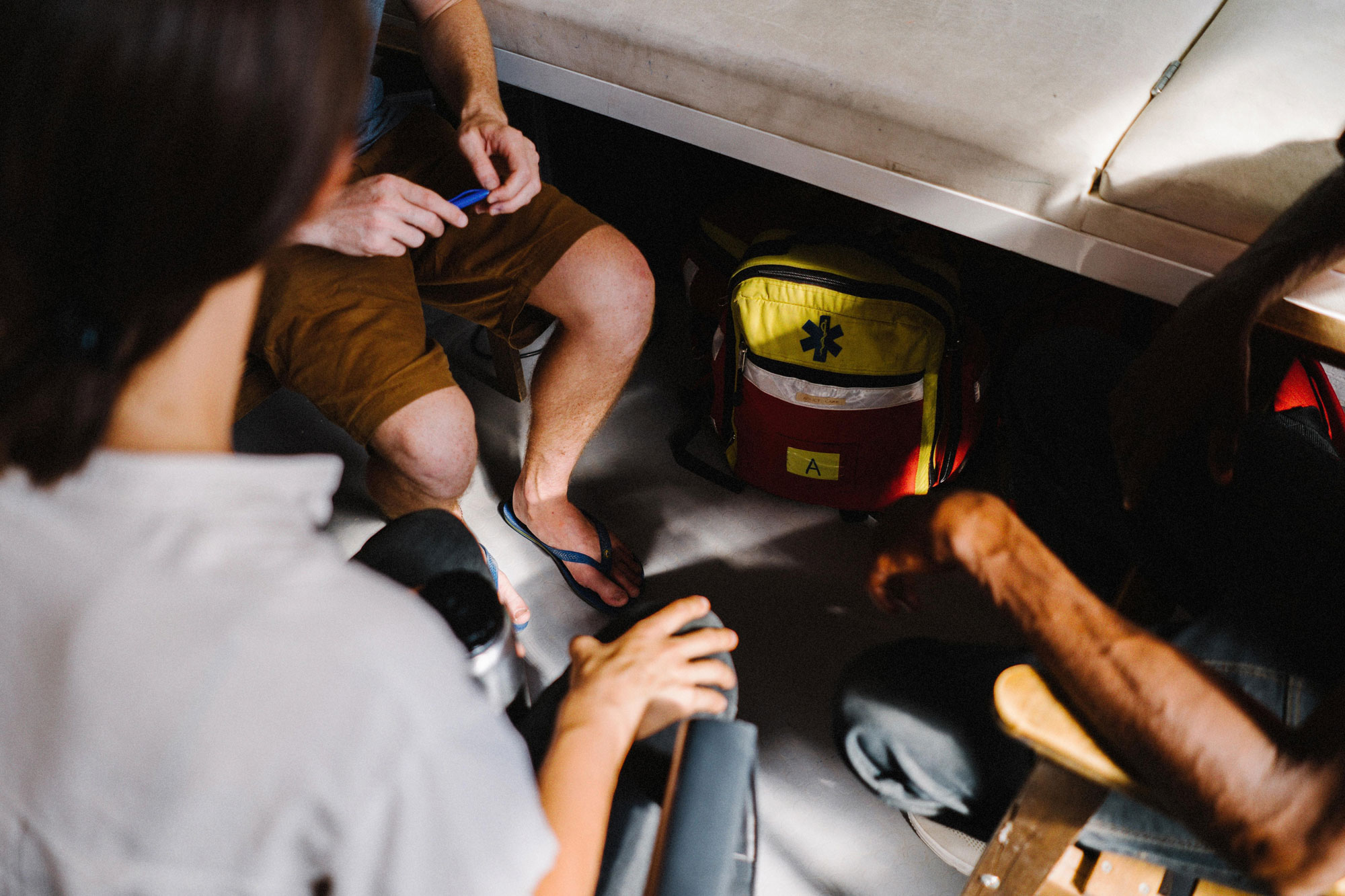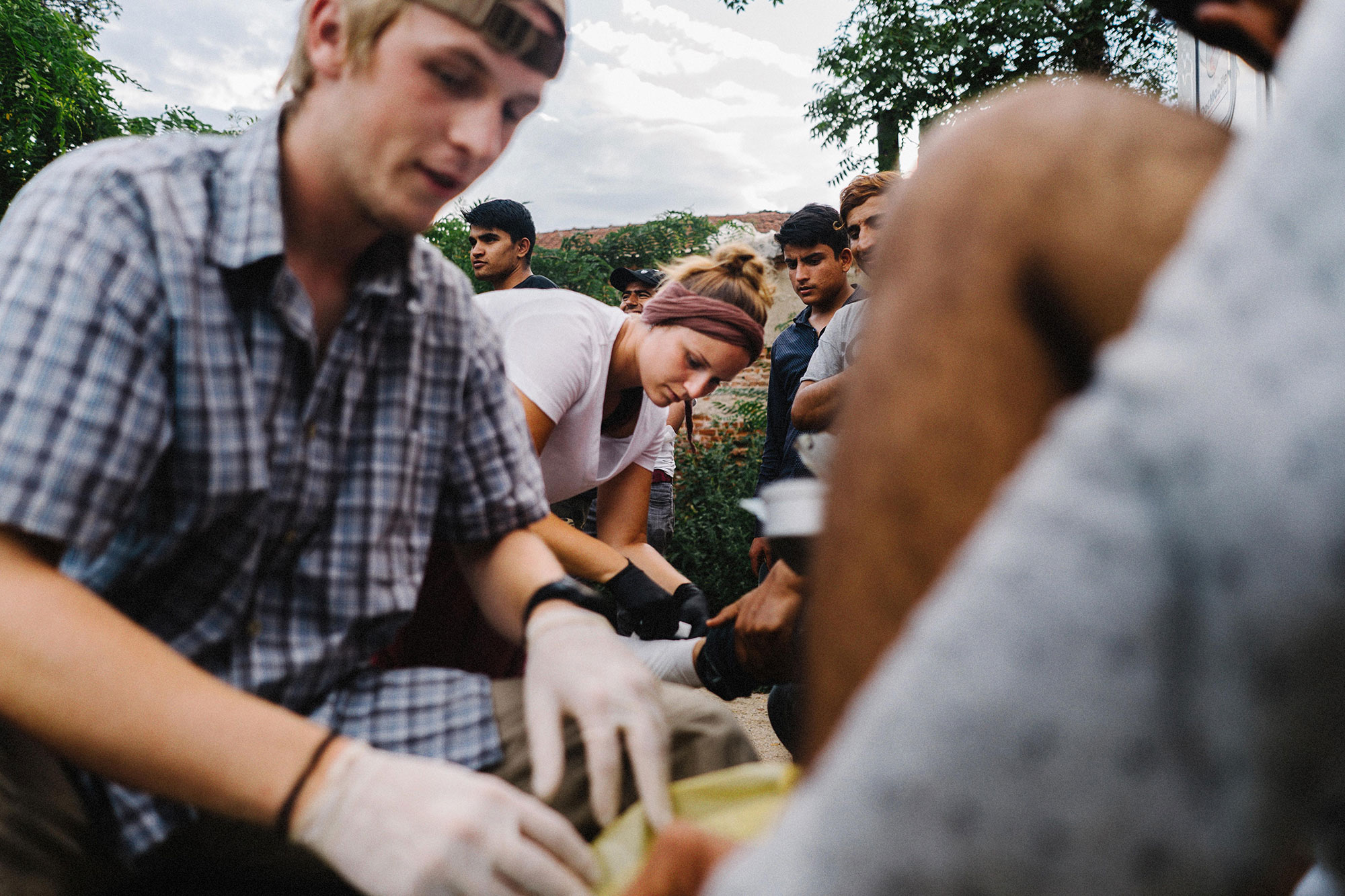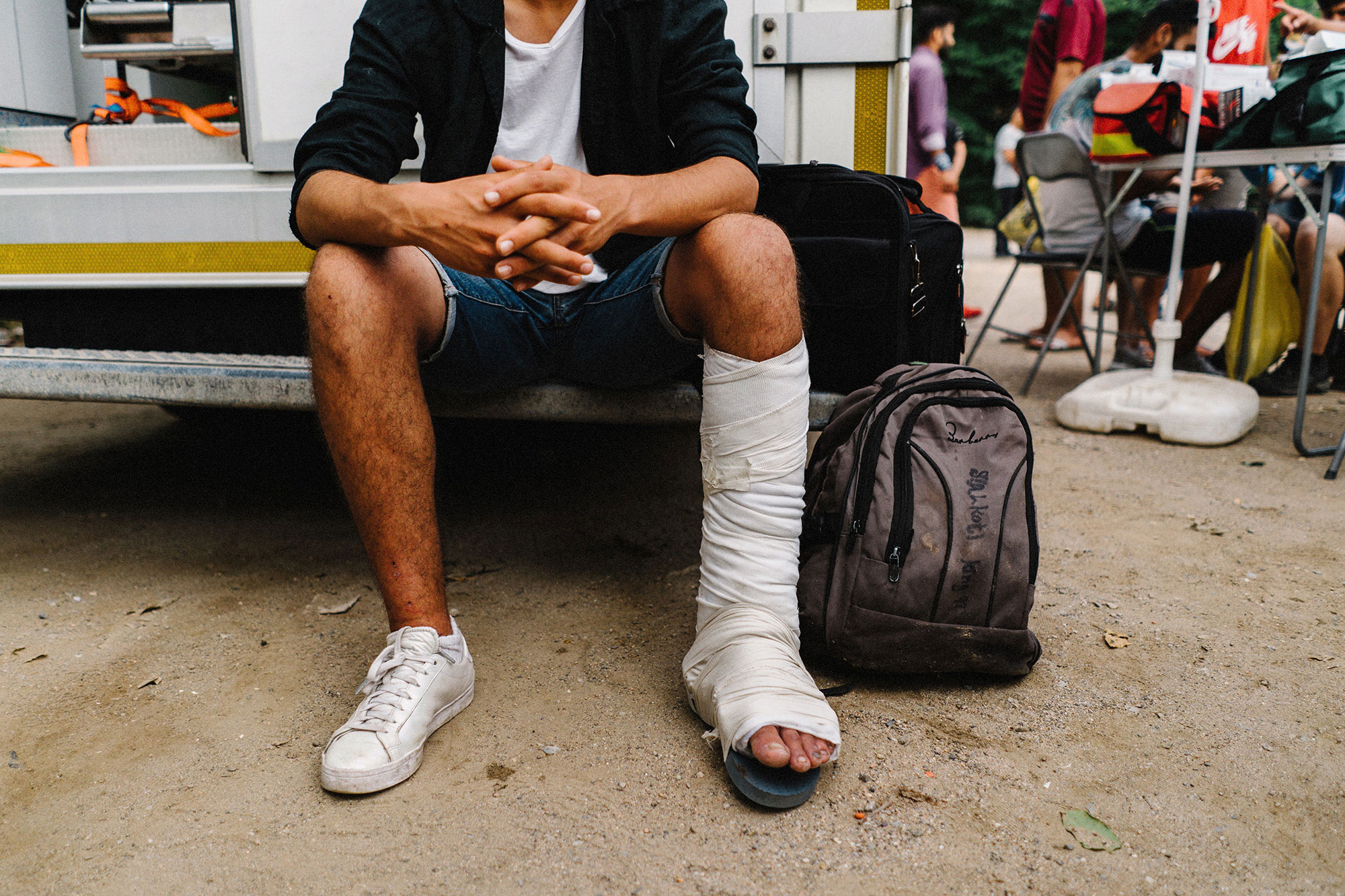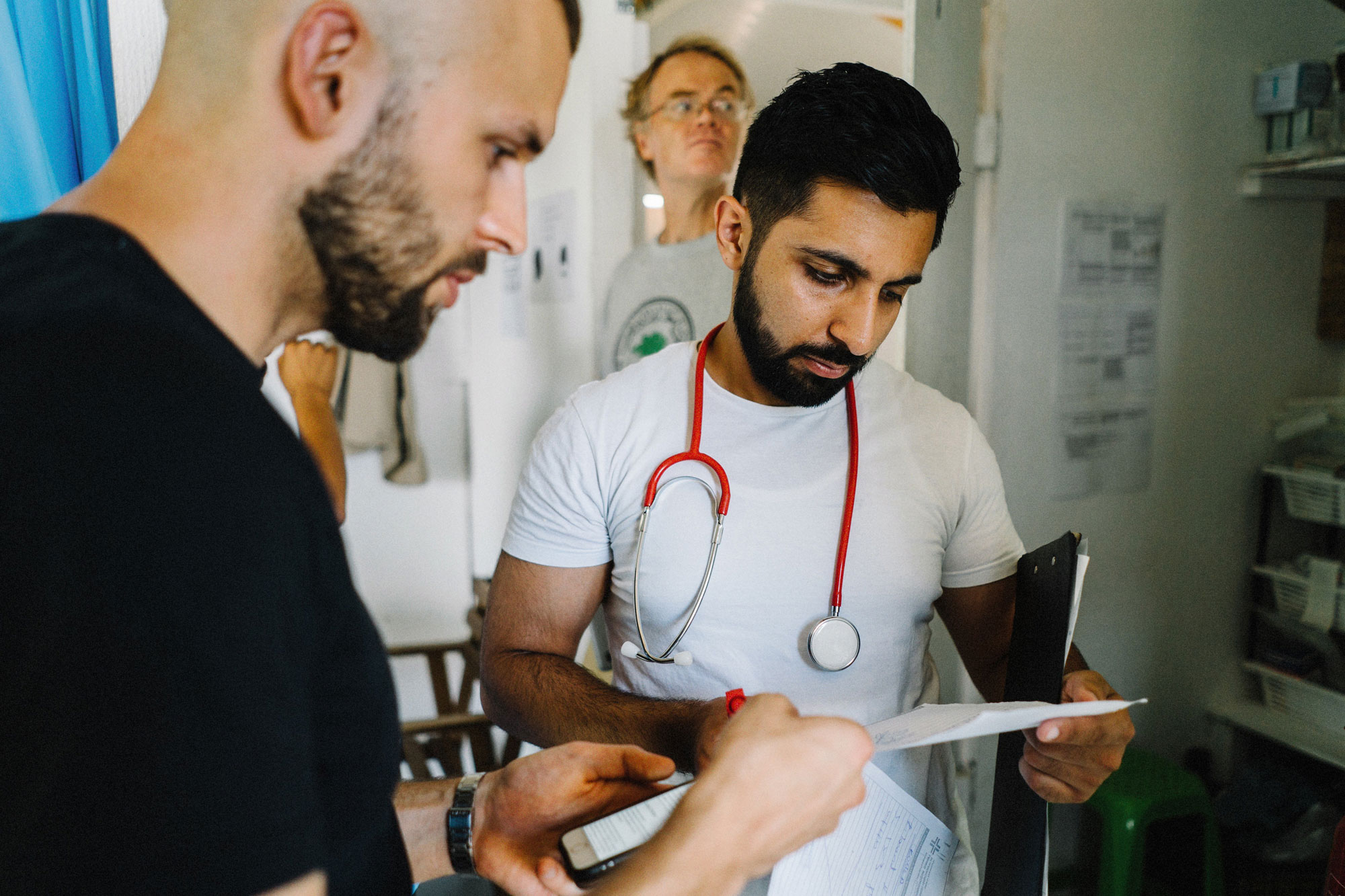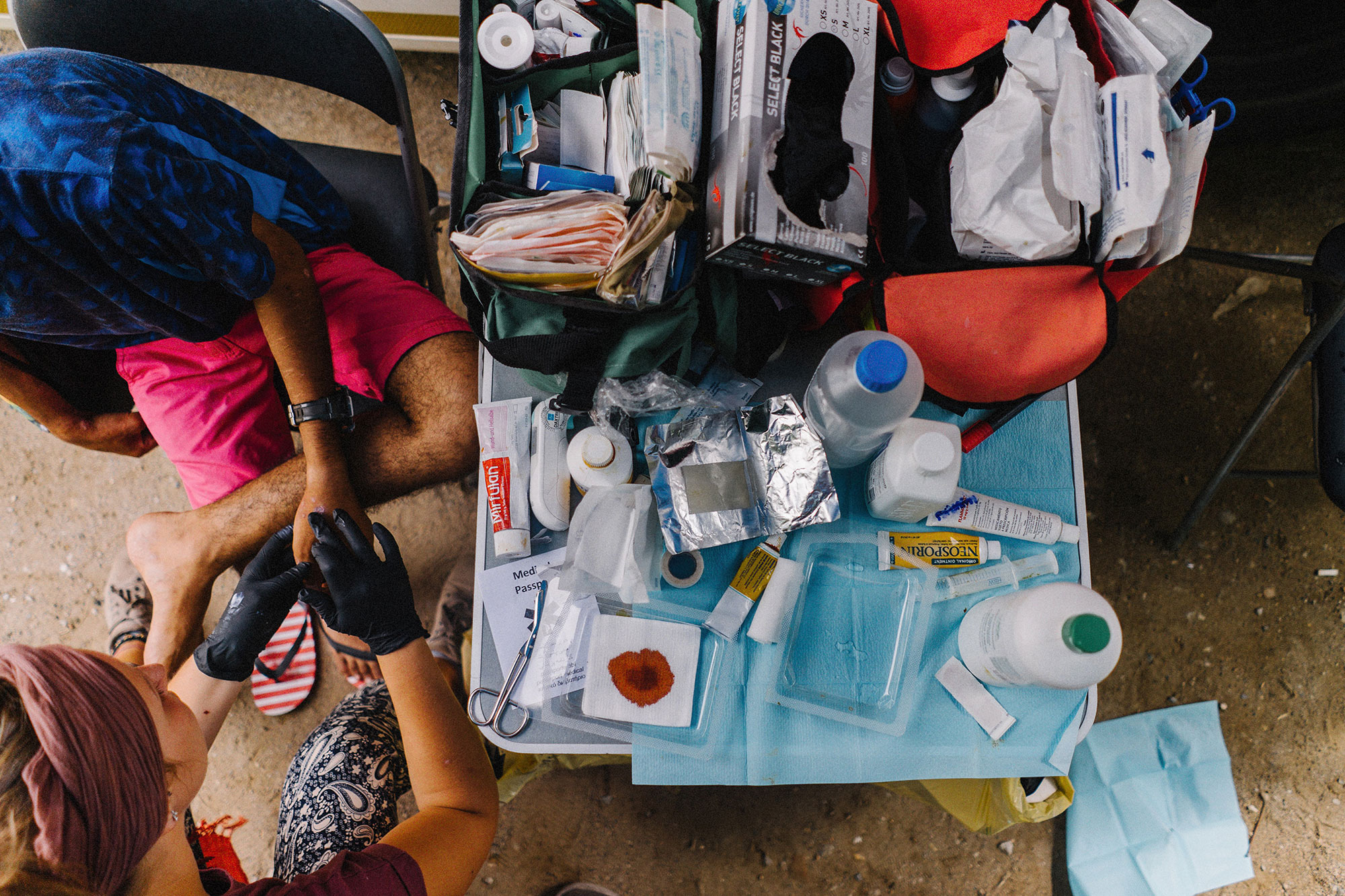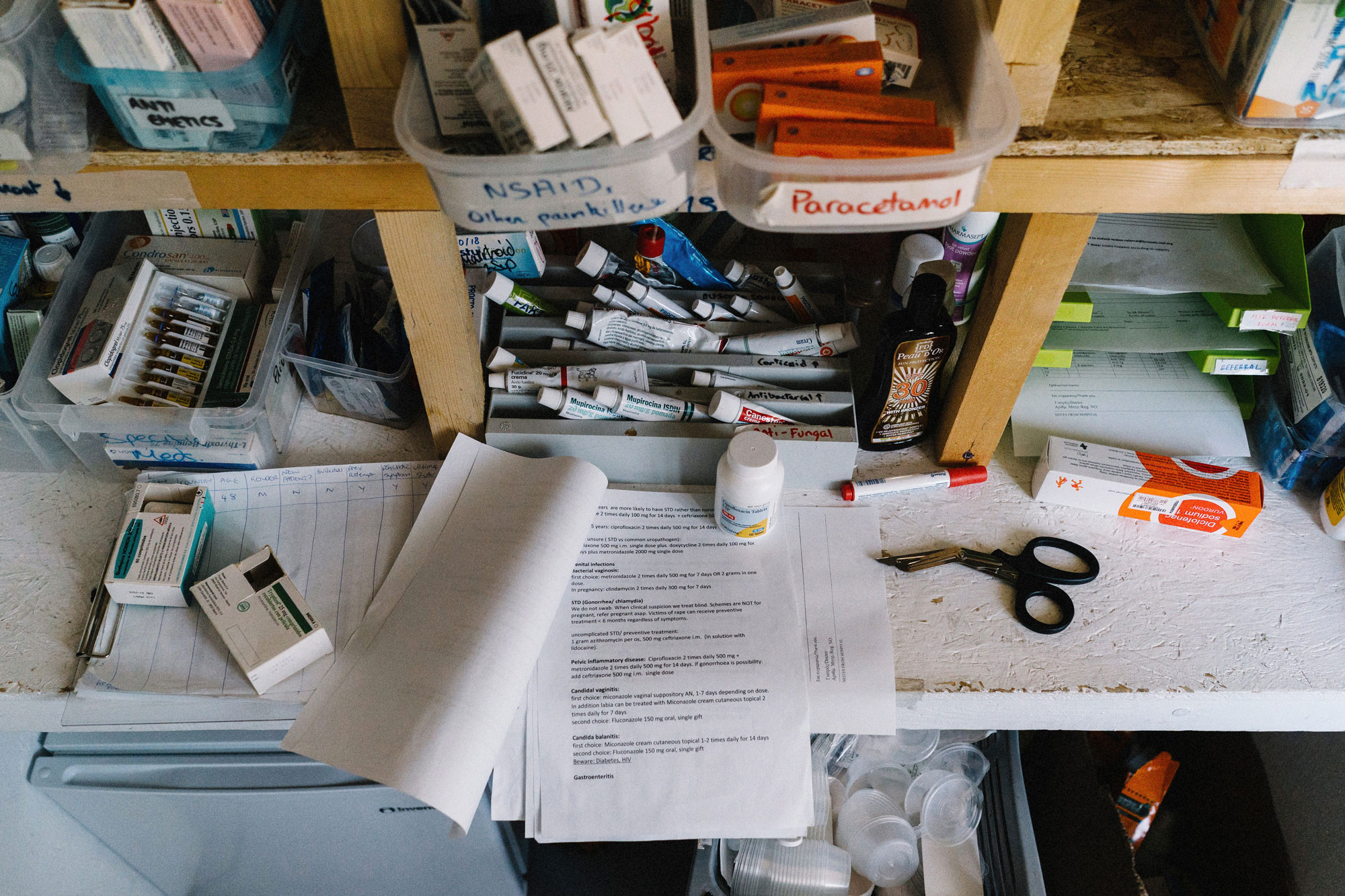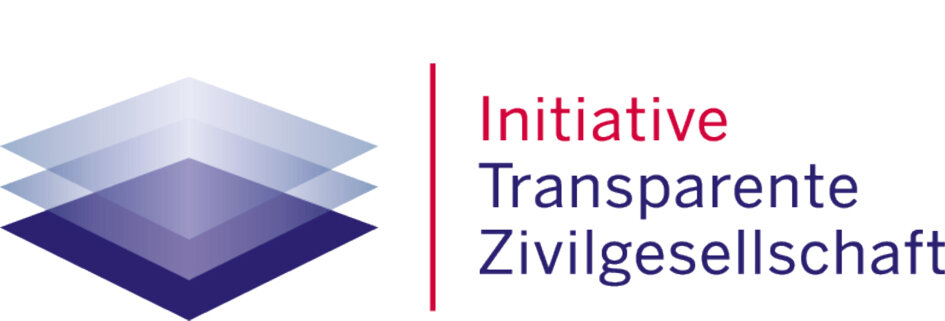Werde Teil unseres Teams
Werde Teil unseres Teams
Werde Teil unseres Teams und setze dich mit uns gemeinsam dafür ein, dass medizinische Versorgung für alle Menschen zugänglich wird, denn Gesundheit ist ein Menschenrecht.
Werde Teil unseres medizinischen Teams vor Ort und unterstütze Menschen in Not oder unterstütze unsere tägliche Arbeit
Was erwartet dich als Freiwillige:r?
Wir sind an verschiedenen Standorten tätig – aktuell in Griechenland, Bulgarien und Bosnien. Medical Volunteers International ist dort aktiv, wo Hilfe gebraucht wird und bietet Schutz- und Hilfesuchenden medizinische Grundversorgung. Wir behandeln unsere Patient:innen in unseren Kliniken, in Räumlichkeiten unserer Partnerorganisationen und mobil an sogenannten Flüchtlingscamps, in Squats und auf den Straßen. Unsere flexiblen und mit Notfallrucksäcken ausgestatteten Outreach-Teams leisten somit direkt vor Ort Hilfe, wo sie am dringendsten benötigt wird.
Flexibles Teamwork
Der Großteil unserer Entscheidungen wird im Team besprochen. Alle Teammitglieder werden so weit wie möglich einbezogen, um die Situation für unsere Patient:innen zu verbessern. Das Team vor Ort entscheidet gemeinsam, welche Arbeit jeweils Vorrang haben soll.
Was erwartet dich nach deiner Bewerbung?
Sobald ihr euch beworben habt und Einsatzort sowie Termine bestätigt sind, stellen wir euch alle erforderlichen Informationen zur Verfügung. Unser engagiertes Team sorgt dafür, dass die Einarbeitung so reibungslos wie möglich verläuft, bis ihr euch im Team vor Ort trefft.
Wenn ihr vor Ort seid, stehen euch unsere örtlichen Koordinator:innen jederzeit zur Verfügung. Die Teams arbeiten eng zusammen und kommunizieren regelmäßig über Messenger Groups um eine bestmögliche Unterstützung der Patient:innen sicherzustellen, aber auch um sich gegenseitig zu unterstützen und die Freiwilligenarbeit zu einer optimalen Erfahrung werden zu lassen.
Volunteer Statements
Xander, Volunteer Doctor, Athens
I first found out about the volunteer project through Indigo Volunteers. I was compelled to volunteer for them because I wanted to try and help where I could with the refugee crisis. I’ve never worked as a medical volunteer before so I wasn’t sure what to expect.
My volunteering experience
I volunteered in Athens for 2 weeks. I was added to the WhatsApp group two days before I arrived which was really useful as Anas, our coordinator, introduced me to the team and let me know where to meet everyone on my first day.
A typical day working as a doctor for the Medical Volunteers in Athens
Each day is actually very different which makes it interesting. Normally, we have a clinic in the morning, seeing everything from babies, pregnant women, adults and the elderly. Most things we can manage ourselves like viral illnesses, chest infections, wounds, scabies, cellulitis etc. Occasionally, patients need referrals for emergency treatment or for specialist care. In the afternoon we normally do another clinic at another location. This varies from squats to other NGOs to refugee camps. In squats we tend to see more skin infections, scabies, head lice etc. In the evening we often eat dinner together or go out for drinks.
My highlights
I most enjoyed working at the Steps clinic, treating the homeless. We saw many very serious wounds and infections that we were able to treat. The place has a great atmosphere and is an amazing project that helps so many vulnerable people.
Lots of the refugees were very well educated and many had high achieving professions back in their home countries. One of my favourite things about volunteering was meeting the refugees and finding out more about them and hearing their stories.
I think my team also made my experience so great! The on-site team was friendly, sociable and we all had a lot of fun working together. I found it very interesting working with healthcare professionals from different cultures and backgrounds – it was fascinating to see how they practice medicine and we were all able to learn from each other.
Final thoughts…
Volunteering in these amazing teams has made me realise the huge scale of the refugee crisis, has helped me appreciate how helpless many of these displaced people are and how much help they still need.
Teresa, Volunteer Medical Assistant, Athens
I came across the Medical Volunteers on social media. I was looking for volunteering work experience and what I liked about this project was that they didn’t have a minimum time frame, which is perfect for me as a student. I’ve worked as a medical assistant before but never outside of the US. The project in Greece would be a new challenge for me.
My first day on-site
I remember my first day on-site was working at Onifita camp. I was a little nervous as it was my first time volunteering abroad and in this environment so I didn’t know what to expect. I was working alongside a few Hungarian doctors who were very friendly and nice. They explained to me all the different conditions they saw and how to treat them.
My highlights
My most impactful experience was to meet and get to know the refugees and hear their stories. Most of them are extremely intelligent and very engaging to listen to. A lot of the time our patients were children and babies, which was a challenge I really enjoyed.
My overall experience
I think the overall experience is very eye opening. I got to work with refugees that are in camp on the street and in different squats. The situation is more dynamic that what I previously understood. In my short time volunteering, I worked with a whole range of nationalities – Irish, Hungarian, British and German. As a student, the opportunity to learn and observe how different doctors from different backgrounds practice their skills was really fascinating. It also gave me a chance to see how practice in an NGO setting is very different than in a hospital or clinic setting as we often don’t have everything and therefore need to find substitutes.
Dana Rütters, Paramedic
I am a paramedic. In October 2018 I was in Thessaloniki for the first time. Unregistered refugees have no access to medical care in Greece. That’s why one focus of the work was the treatment of their health problems. My main task was the treatment of infected wounds, cuts and the consequences of long marches on the feet. During my time in Thessaloniki, I have seen the importance of continuous on-site support in a network with other organisations. I have met dedicated people who try to help refugees in need even under the most difficult conditions. This often involves more than just medical care. Water in summer, warm clothes and sleeping bags in winter, food and the opportunity to meet, to talk, to sing together are equally important needs. Trying to fulfill these needs is also an important part of the on-site work. For my life, being a part of this team of helpers has been a formative experience. I hope there will be many volunteers in the future to continue the work.
Reto Thalmann, Doctor
In the years 2017 and 2018, I spent about two months each year as a doctor in our clinic on Lesvos. It was shocking for me to see how the situation for the refugees on the island had worsened during this time: the Moria camp was overcrowded, people reported violence, daily fighting, and fear for the safety of their children in a place that was supposed to provide shelter. There was also uncertainty about their future and the outcome of the length of the asylum procedures. We saw the increasing despair of these people and how depression, stress disorder, trauma and psychosis developed under these conditions.
What we could do in this desolate situation was to take time for our patients, listen to their stories and take them seriously as people – and not treat them as anonymous numbers in an administrative file, as often happens in asylum procedures. Even though this did not solve all our problems, we experienced little moments of hope and joy with our patients.
Maria Fix, Nurse
My name is Maria and it’s my second time working as a volunteer nurse on Lesvos. As I previously volunteered here for only two weeks, I felt, I needed to return for a longer period of time. The clinic is part of One Happy Family, a community center sited approximately an hour’s walk from the Moria camp. In this surrounding, we try to give our patients a safer place with variety of activities. For us it is important that we take as much time as is needed for a every consultation. Sadly it is not often possible for other places in the camp. Every day we see approximately 40 patients, with conditions ranging from coughs and colds, to severe mental health problems. For us it doesn’t matter why they come, everyone deserves the same respect.
I have already worked twice in Thessaloniki as a health and pediatric nurse. The fact that people in Europe do not have access to medical care is something I have never thought to be possible. My last two-month stay has shown me once again how important our work on-site is, because without the mobile team many people don’t get access to the healthcare system and are left alone with their physical and mental injuries, some of which are severe. But sometimes it is only the small things like toothbrushes or toothpaste that seem to be so normal and irrelevant for us that put a smile on the faces of the refugees. I also remember a 14-year-old homeless boy who had no one to take care of him when he was suffering from a severe feverish infection. Even though you have to improvise every day and are confronted with very tragic fates, it has been a very enriching experience, because the help you give there arrives exactly where it is needed most. My stay on site taught me not to take everything we have for granted, but also that there are people who live under miserable conditions, and that I have the opportunity to support these people and therefore see it as my duty.
Gesche Bonas
After completing my medical studies, the support of the organisation on-site in Thessaloniki was an instructive, interesting and exciting experience that I would not want to miss. Medical Volunteers International e.V. offers refugees a low-threshold access to medical care, which is especially important for new arrivals, unregistered and/or homeless refugees, because they have limited access to regular care. I find it important to get a picture of the political and everyday situation on the ground and can recommend it to everyone.
Frauke Lukaszewitz, Nurse
I am a paediatric nurse, coming from Germany, Stuttgart and have been to Athens as a volunteer. The work in Greece is very important because otherwise most refugees over there wouldn’t have access to any kind of health system and medical care.
With the work in an international team you can expand your mind, get to know wonderful people and achieve a lot with small actions.
Jana Baum, Assistant Doctor
I am an assistant doctor of internal medicine in my fourth year and was in Thessaloniki for the first time in November 2018.
I worked mainly in the “carpark”, where the homeless refugees, most of whom had just crossed the border, are cared for. The ambulance, loaded with all kinds of bandages, medication, medical balms, water, and some volunteers, goes from Diavata to Thessaloniki once a day during lunchtime.
When they arrive at the parking lot, familiar faces of young refugees help them to unload and set up. Then everything starts: inside the patients are treated by doctors (if those are available), and outside the wounds are treated. The volunteers include doctors and nurses as well as physiotherapists and medical students, which is a great benefit.
In my opinion, the project starts at exactly the right place because it offers so much more than basic care for the refugees. In times of increasing resentment, the aid organisation offers the opportunity to create access to each other. We cared for an average of 50-70 displaced young men daily with about 6 predominantly female employees. Many other refugees also come because the ambulance car is used for serving food, dancing, joking and making music.
The interpreters do a fantastic job, the attempt to break through language barriers on their own often ends in warm laughter from all sides. I will definitely return next year. Personally, it is an enrichment for my work here and for my life.
Felix Merdian
I spent 3 weeks in Thessaloniki where I treated displaced refugees with other great volunteers from around the world. The patients, mainly young and male, lived on a deserted construction site or were just travelling through. They had no access to medical care and were dependent on us for medication, medical supplies or referrals to specialist care. Some of the refugees I met became my friends. They are young adults like me hoping for a positive and peaceful future. They don’t deserve to be left alone in the way they are right now.
Jede Spende hilft!
Jetzt spenden!
Warum Spenden? Wir sind auf Spenden angewiesen, um medizinische Ausstattung und Medikamente beschaffen zu können. Unsere Verwaltungskosten halten wir dabei so niedrig wie möglich. Mit deiner Hilfe ermöglichen wir einzigartige und lebensnotwendige medizinische Notversorgung für notleidende Menschen. Etwa die Hälfte unserer Patient*innen sind nicht registrierte Geflüchtete und würden ohne unsere gemeinsame Hilfe medizinisch unterversorgt bleiben. Deshalb ist deine Spende so wichtig.
Spendenkonto
Medical Volunteers International e.V.
IBAN DE08430609672076077900
BIC GENODEM1GLS
GLS BANK
Spenden per Paypal
Bitte nutze das Tool der GLS Bank (oben) und hinterlass deine Emailadresse, damit wir deine Spende richtig zuordnen können.
Danke!
Spendenzweck
Wir freuen uns über jede Spende, die uns dabei unterstützt, unseren satzungsgemäßen Zweck zu erfüllen, nämlich Menschen in Not zu helfen! Solltest Du Deine Spende für ein ganz konkretes Projekt oder einen unserer Standorte tätigen, werden wir uns bemühen, diese auch genau so zu verwenden.
Sollte dies nicht möglich sein, wird Deine Spende anderen Projekten oder Standorten zugute kommen, die ebenso auf eine Finanzierung angewiesen sind.
Am einfachsten hilfst Du uns mit einer sogenannten „freien“ Spende, also einer Spende, die keinen bestimmten Spendenzweck hat.
Vereinfachter Spendennachweis
Du hast schon gespendet und brauchst eine Zuwendungsbestätigung? Bei Spenden bis 300 € genügt dem Finanzamt bereits die Kopie des entsprechenden Kontoauszugs bzw. ein Ausdruck vom Onlinebanking in Verbindung mit dem Begleitschreiben, welches du hier findest.
Wenn eine Spendenbescheinigung gewünscht wird, bitte die Adresse bei der Überweisung bzw. bei Paypal in den Betreff schreiben. Spendenbescheinigungen werden zu Beginn des Folgejahres verschickt.


